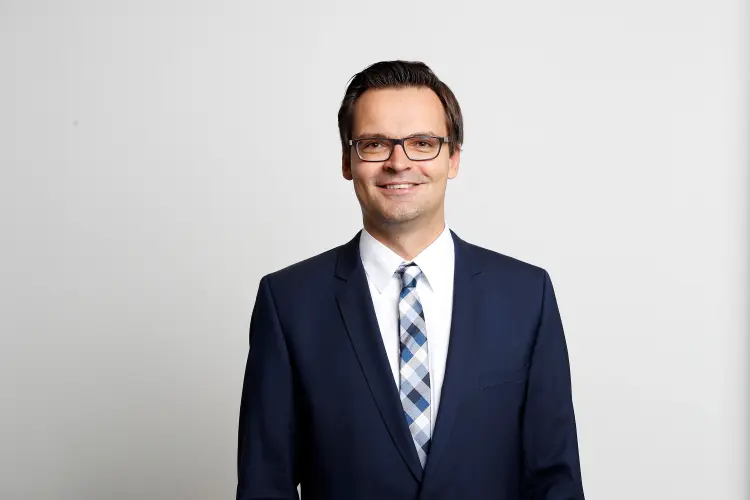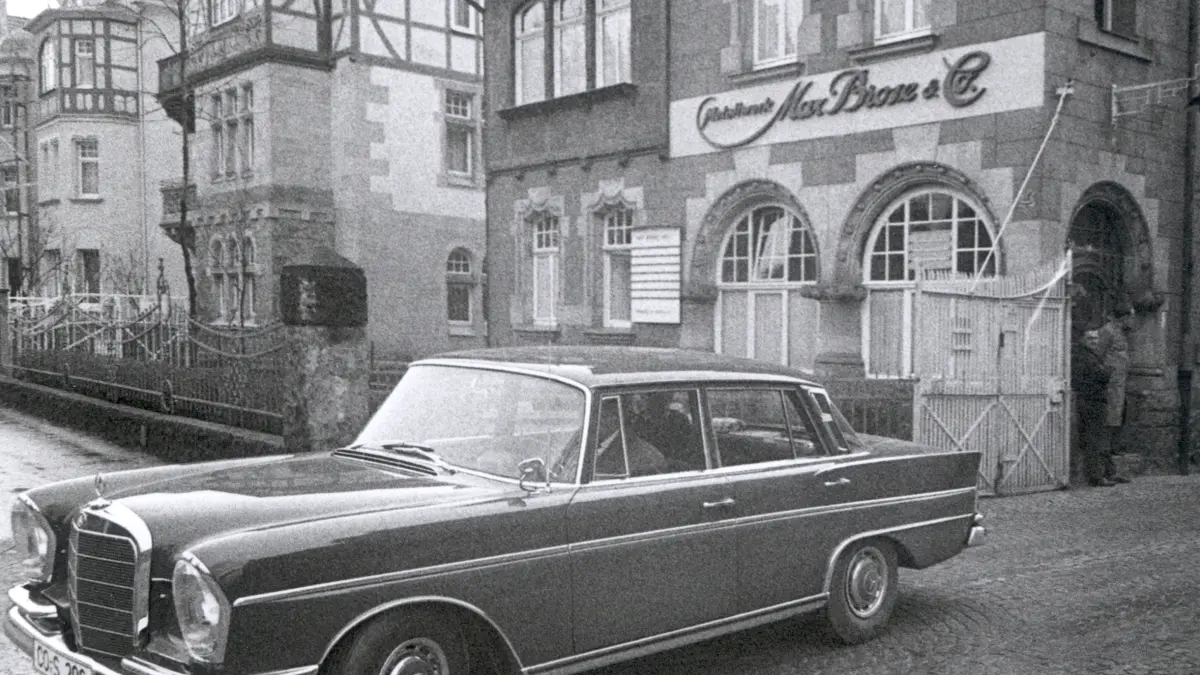From Coburg into the World
Our family business has developed from its beginnings in Berlin, through the establishment of its own production facility in Coburg, to a globally active and successful automotive supplier. It is a history characterized by visionary strength, entrepreneurial courage and an unconditional will to succeed.
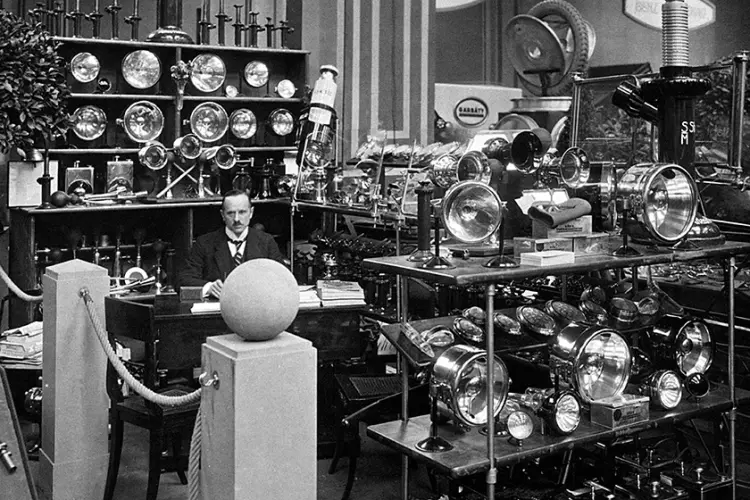
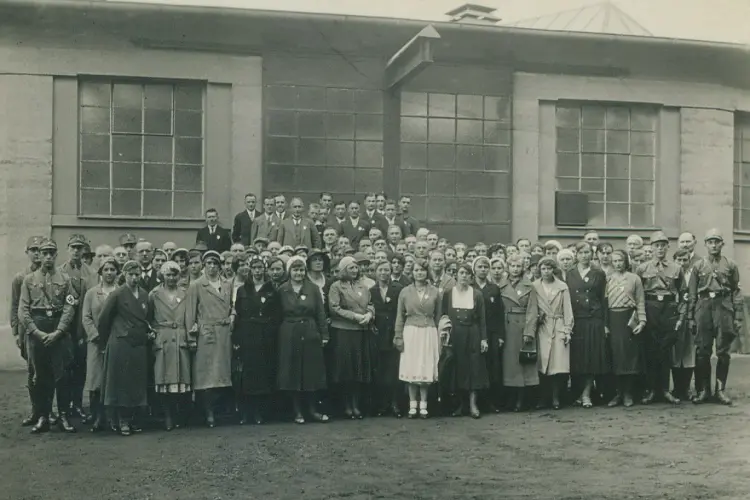
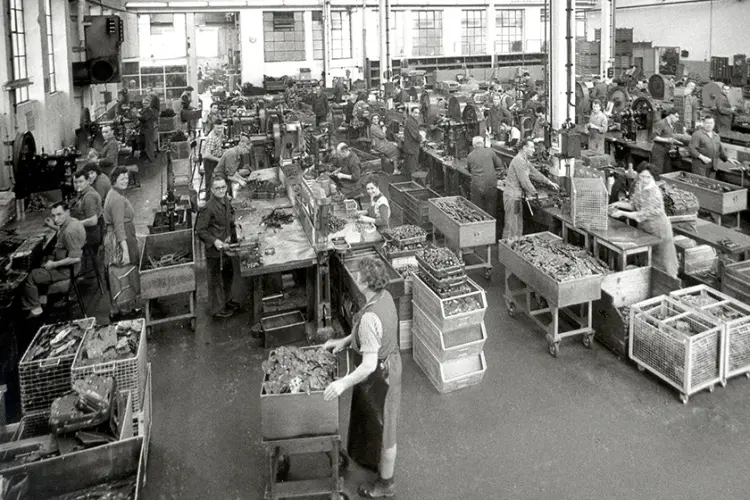
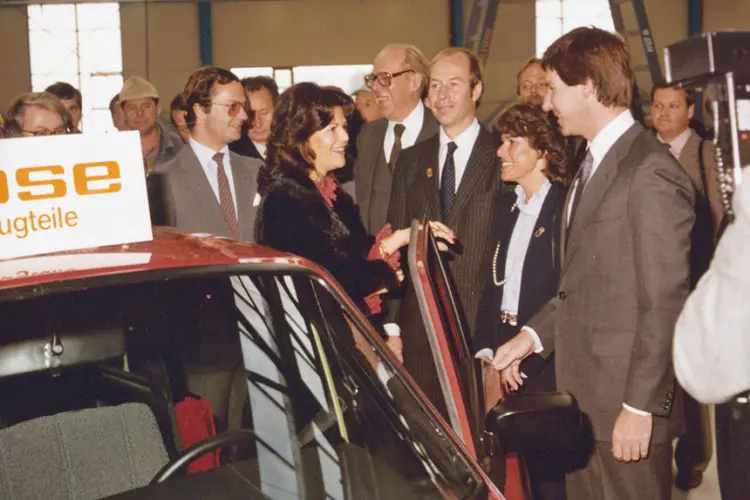
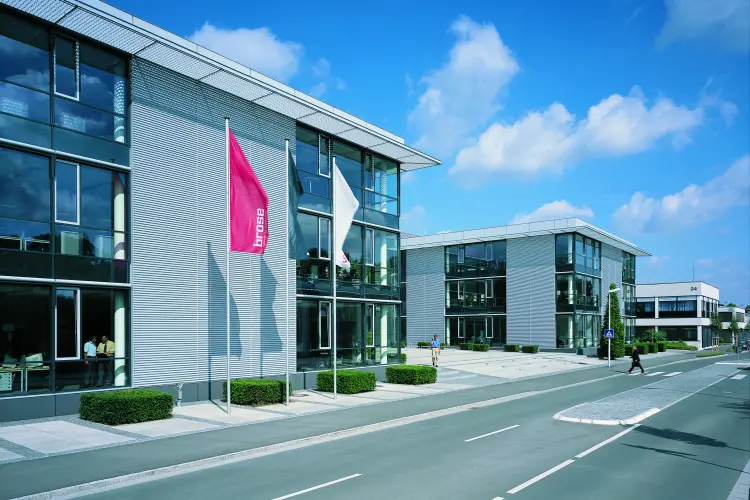
The Start
The history of Brose begins in 1908 in Berlin with the founding of a trading company for automotive accessories. Convinced of the future of the automobile, Max Brose and his partner Ernst Jühling founded the "Metallwerk Max Brose & Co." in Coburg in 1919.
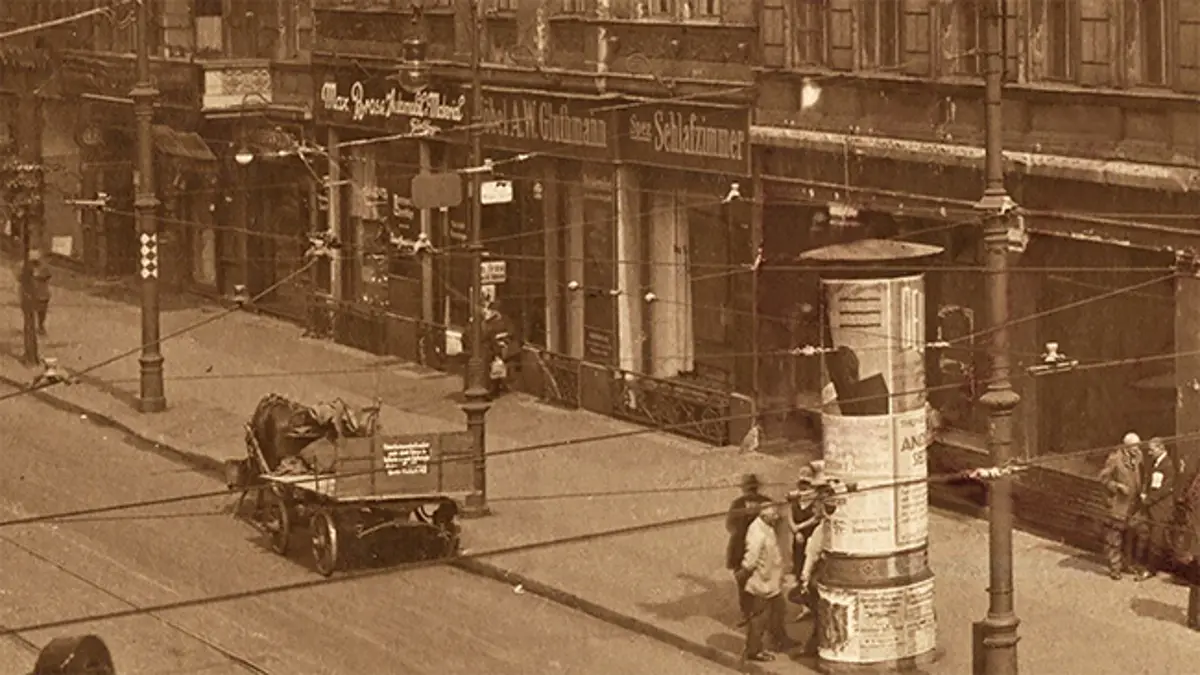
1908
The founding years
The young Max Brose observed that motorization was replacing carriages. Convinced of the future of the automobile, the young salesman opened a trading business for automotive equipment and aircraft accessories in Berlin in 1908 at the age of 24.
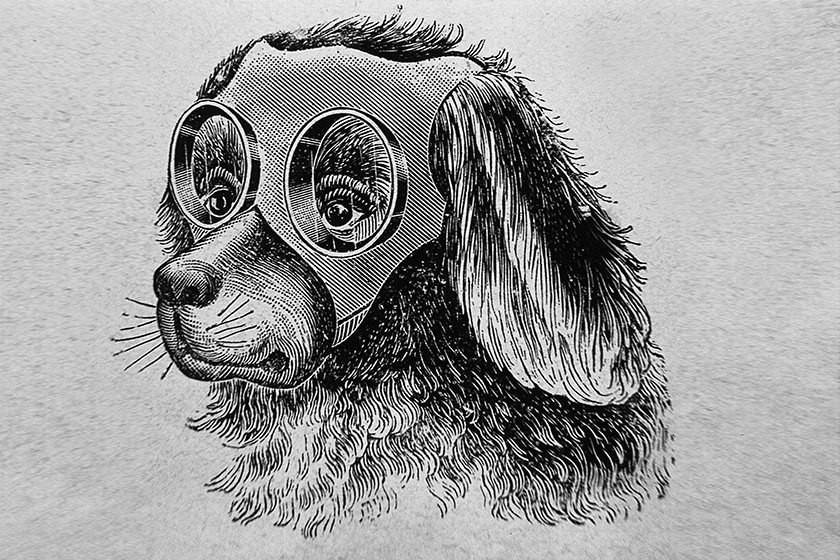
1914
"Atlas" and "Mabro" brands
Max Brose’s product catalogue grows from year to year, comprising a good 149 pages in 1914/1915. Besides automobile accessories, the portfolio includes motorcycle and motorboat equipment. Not long afterwards, the company also begins selling sparkplugs, headlights and tools using its own trade names of “Atlas” and “Mabro”.
A broad spectrum of accessories is on offer for the modern motorist in the twenties: It includes windshields, horns, mirrors, speedometers, canisters and shock absorbers as well as “all types of clothing”. There is even a “leather mask with head and neck bands” for four-legged passengers.
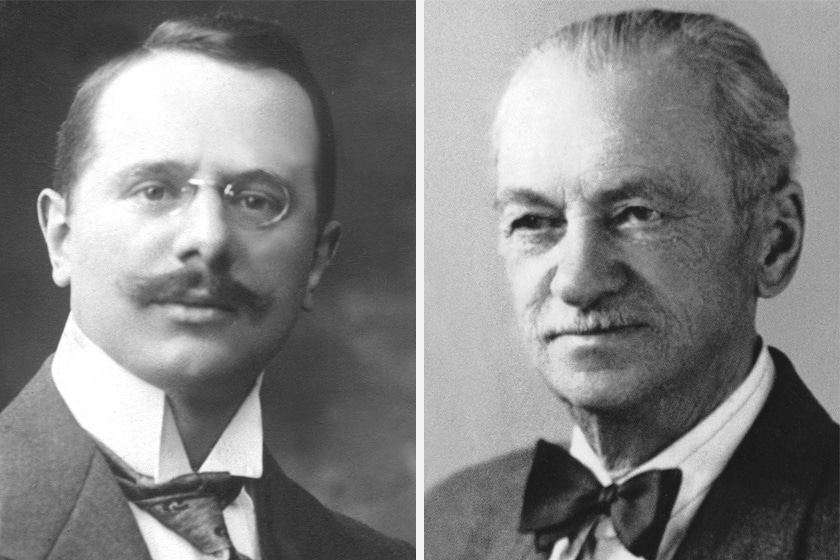
1919
Entry into in-house production
After the end of the First World War, Max Brose (left) decided not only to sell automotive parts, but to manufacture them himself: In June 1919, he and his partner, the chemist Ernst Jühling (right), founded "Metallwerk Max Brose & Co." in Coburg/Upper Franconia. This laid the foundation for the automotive supplier Brose.
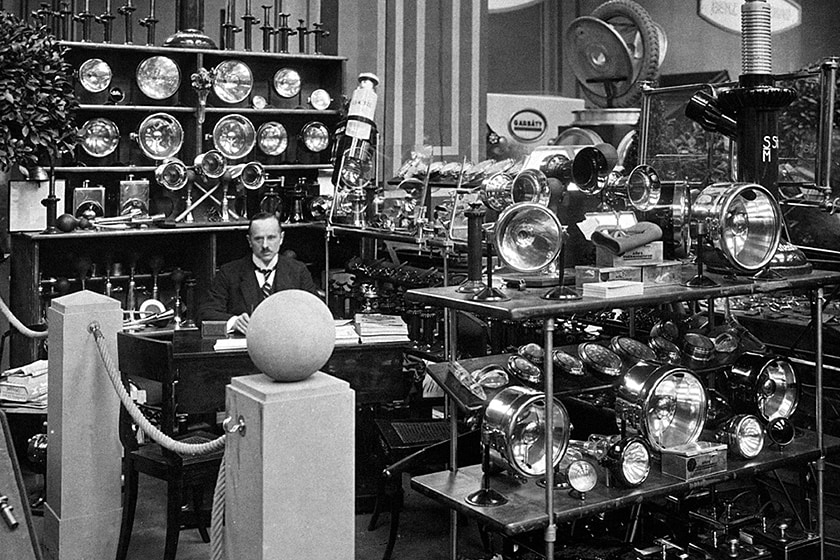
1924
Solid growth in changing times
The Weimar Republic alternated between crises and economic cycles. The "Metallwerk" in Coburg did solid business during these challenging times. Max Brose steadily expanded his product portfolio and regularly acquired new customers at trade fairs.
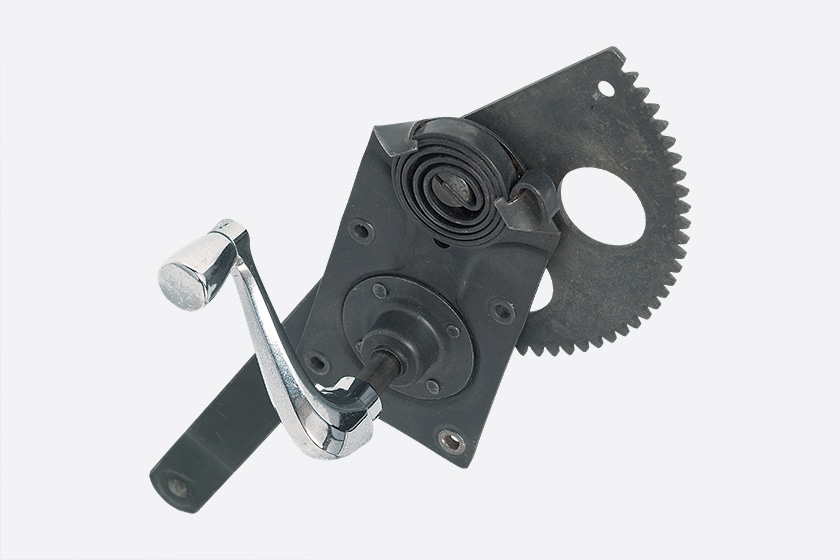
1926
Manual window regulator
In 1926, Max Brose patented the "crank drive for retractable windows". Two years later, series production of the manual window regulator began in Coburg. This product formed the basis for further growth.
Brose installed the so-called wrap spring brake in the Atlas window regulator - a novelty in Europe: A small round spring in a steel housing made it possible to move a toothed segment with a lever arm by means of a crank and to hold the disk attached to it in any position.
National Socialism
To mark the company's 100th anniversary, the Stoschek and Volkmann families have commissioned a scientific investigation into the history of the family business and the attitude of company founder Max Brose during the Nazi era and have published the results. Out of a sense of responsibility for its own history, the family-owned company has maintained its own archive since 2016, which professionally preserves the family and company history and makes it available for use.
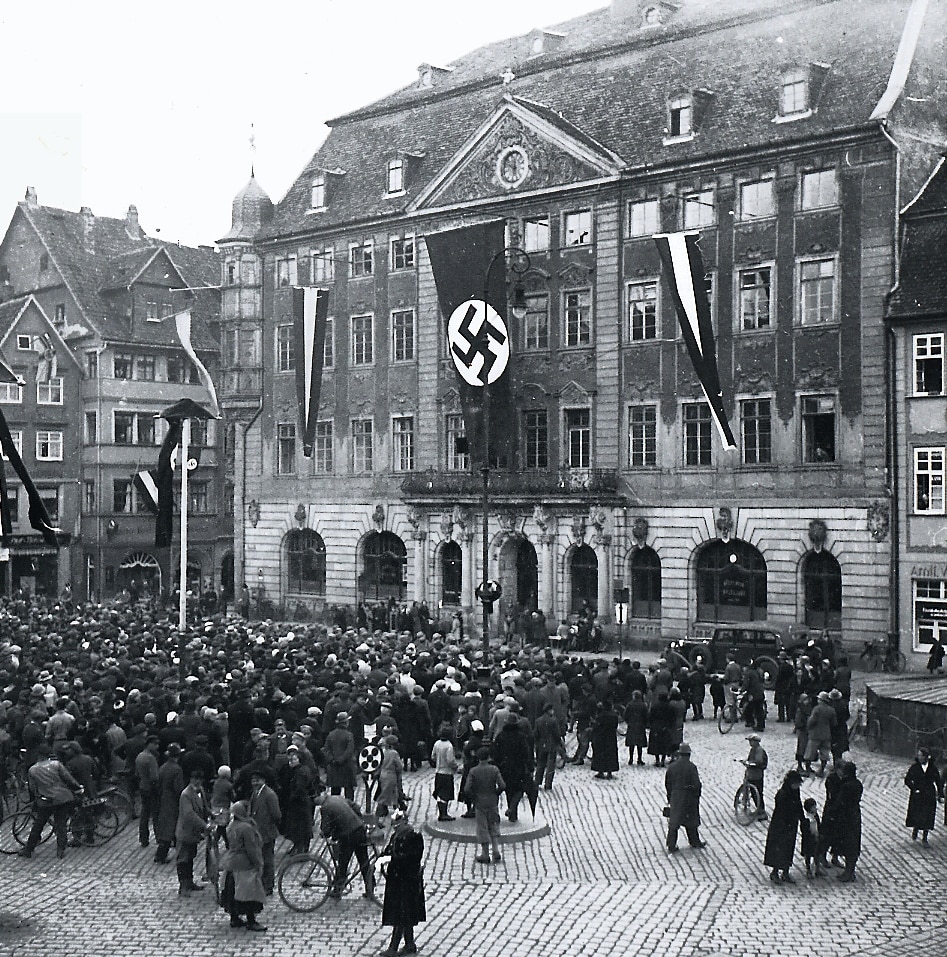
1933
Unreliable party member
Coburg was the first "National Socialist city in Germany", electing Franz Schwede (NSDAP) as its first Lord Mayor in October 1931. Under pressure from Schwede, Max Brose became the most prominent Coburg businessman to join the NSDAP in May 1933. He did not do this out of ideological conviction, but to protect his company and his employees. Brose was demonstrably regarded by the National Socialists as an unreliable party member.
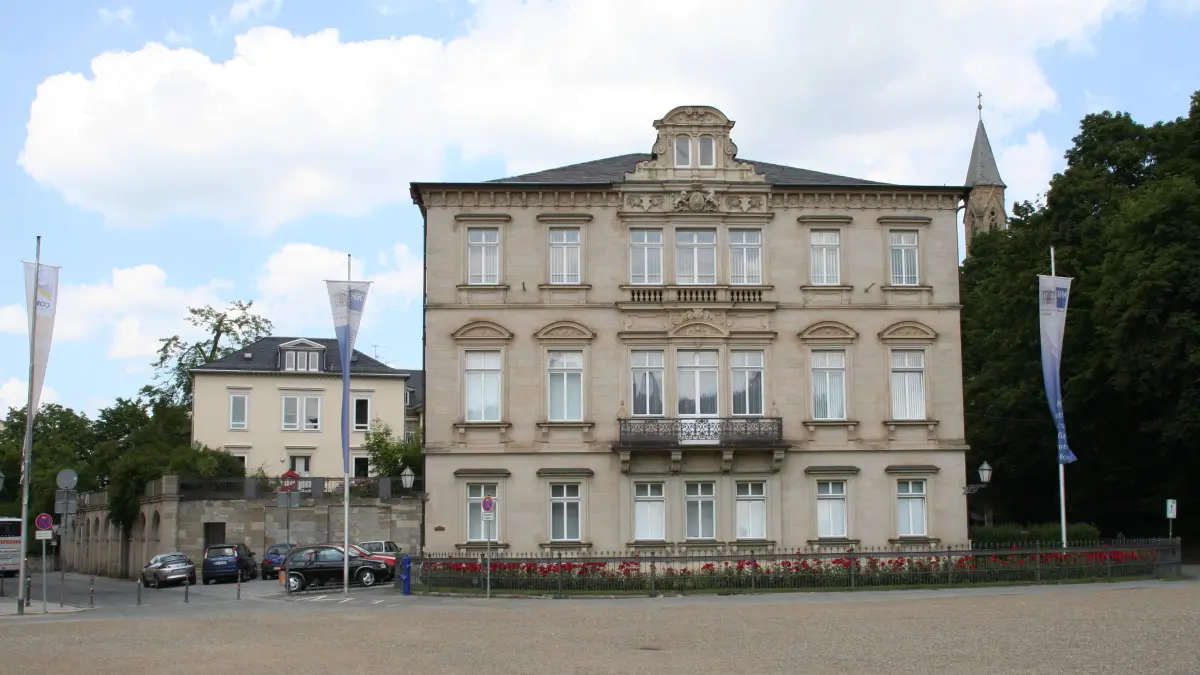
1934
President with critical distance
In May 1933, Max Brose was elected to the committee of the Chamber of Industry and Commerce (IHK) in Coburg, and appointed president in 1934. On taking up this honorary position, he wanted to protect the chamber – as well as Coburg businesses – from the influence of radical National Socialists. According to Horst Schoenau, the President of the Chamber of Industry and Commerce for South Thuringia at that time, Max Brose repeatedly criticized the National Socialist party. During his time in office, he publicly expressed his “horror at the atrocities committed against the Jews.”
All IHK presidents, including Max Brose, were later appointed military economic leaders. Because of his critical stance, Brose was removed from his post after the "Gauwirtschaftskammer" was founded in 1943.
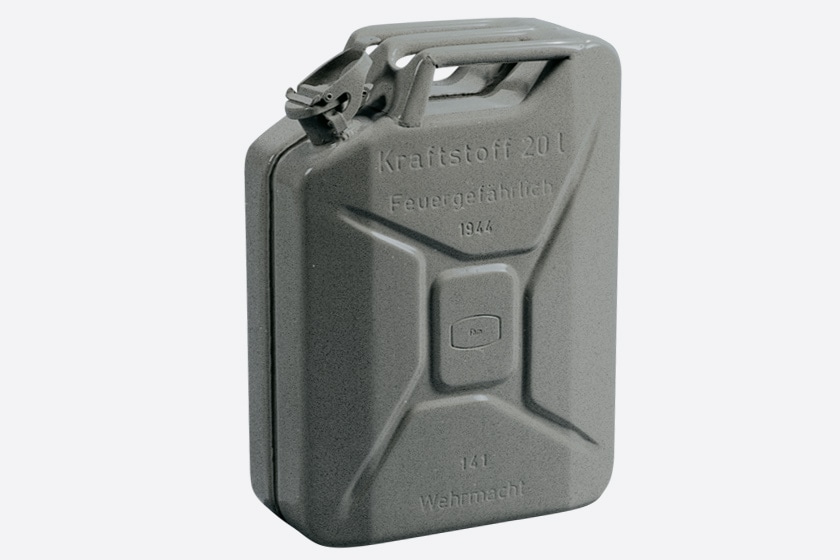
1936
Canister manufactured under license
The 20-liter standard canister was developed in 1936 following a state tender by Eisenwerk Müller & Co. AG. Brose and a number of other companies, including Ambi-Budd, Nirona and Rheinmetall-Brosig, manufactured the canister under license for the Wehrmacht. Brose was neither the only nor the largest producer. After the end of the war in 1945, Brose continued to produce canisters on behalf of the Western Allies until the end of the 1950s.
The canister manufactured by Brose had a high-quality weld seam, a robust bayonet lock and a patented tube for quick pouring of liquids.
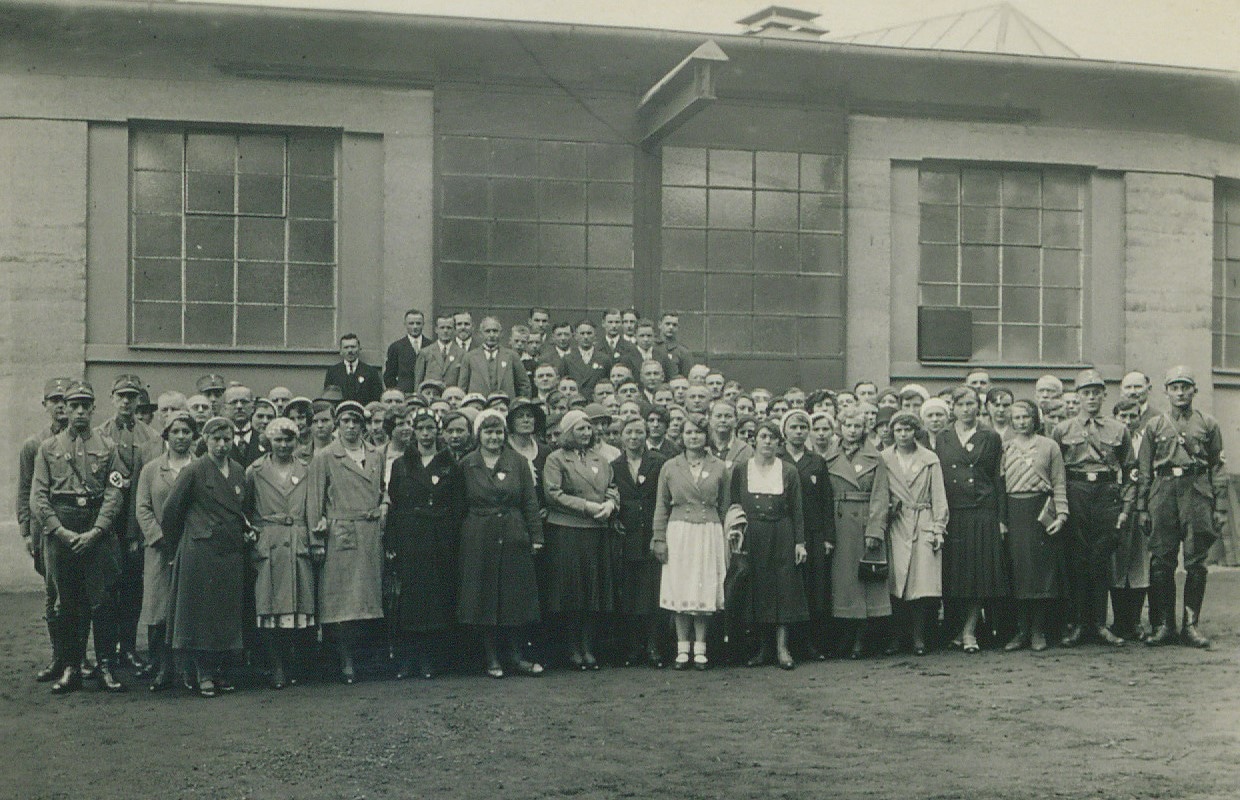
1938
Entrepreneurs with social responsibility
Max Brose and Ernst Jühling ran their company under the strict supervision of the party authorities with a clear social attitude. In 1938, they set up a benevolent fund for employees. Brose was demonstrably personally committed to helping employees who suffered political persecution. Violence within the workforce or towards forced laborers was strictly condemned.
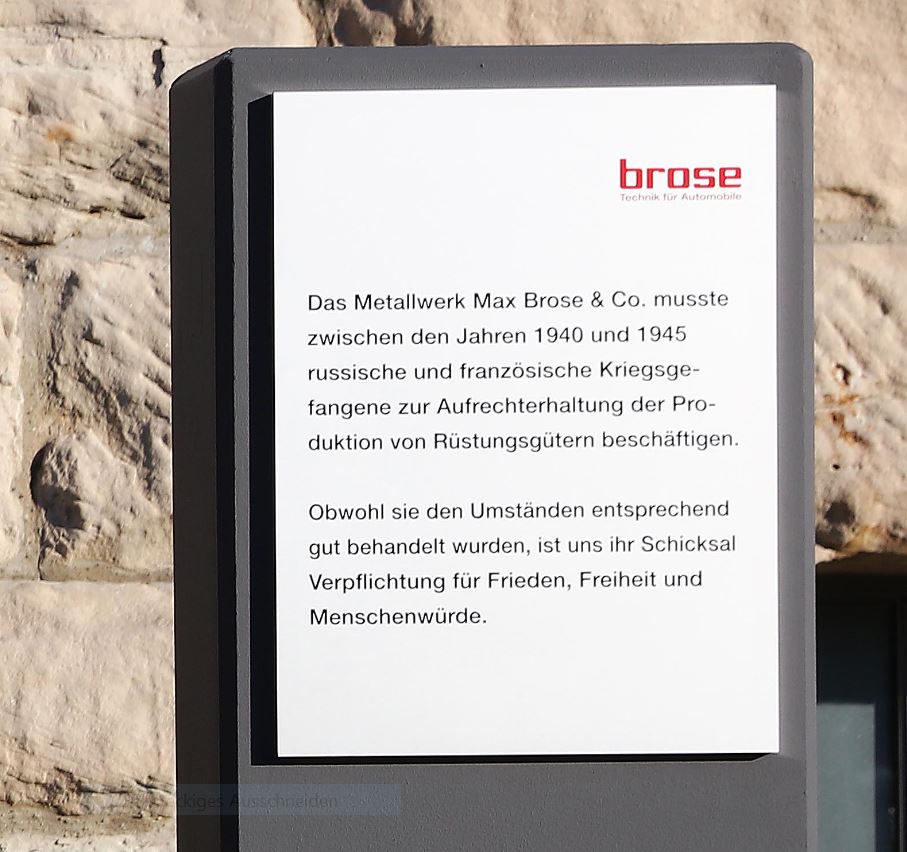
1940
Use of forced labourers
Metalworking companies had to produce armaments during the war economy. In addition to window regulators, auto body parts and canisters, Brose also manufactured ammunition components. As the majority of the company's own workforce was conscripted for military service, Brose, like all industrial companies in the region, used forced laborers. Up to 260 forced laborers were employed at Brose between 1940 and 1945. Brose provided decent care and treatment on the company premises.
Brose was aware of its historical responsibility early on and made a large financial contribution to the "Remembrance, Responsibility and Future" foundation in 2000. The foundation paid compensation to former Nazi forced laborers on behalf of the German economy.
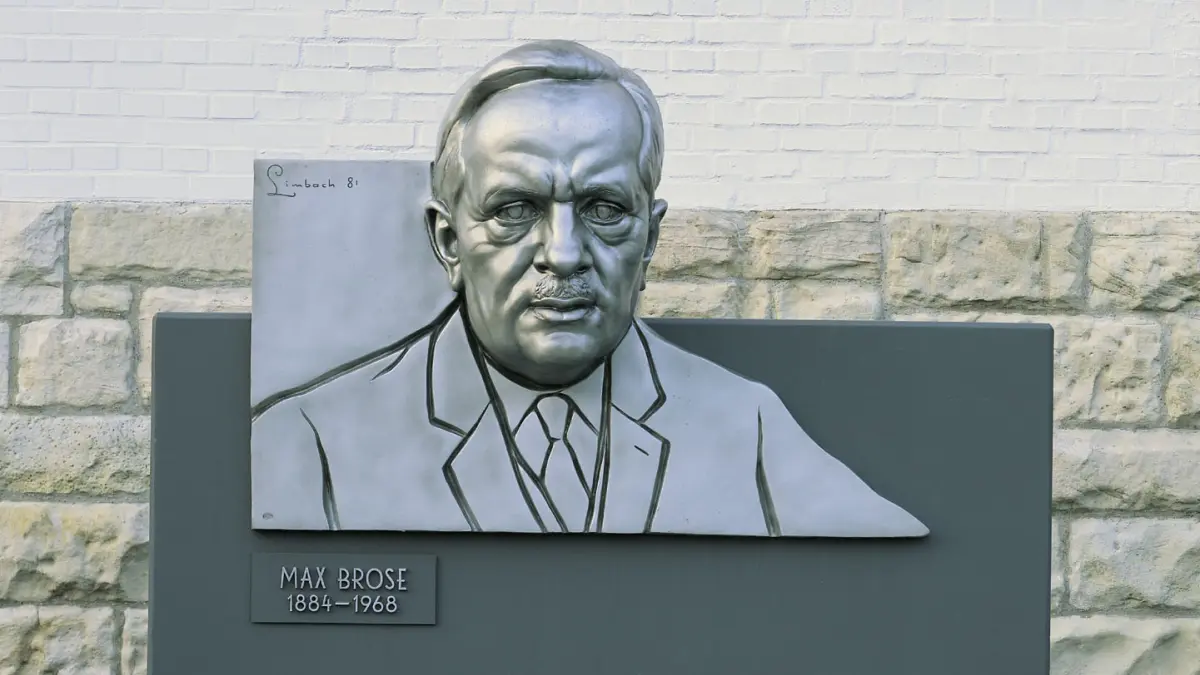
1945
Company and employees protected
After the end of the war, Max Brose's conduct during the "Third Reich" was thoroughly investigated by three courts in Coburg, Bamberg and Nuremberg. In the end, Brose was classified as a "follower" - the lowest possible classification. Max Brose was not a "Nazi activist". He did not use his offices and functions for personal gain, but to protect his company and his employees in the Nazi stronghold of Coburg. His actions and his attitude during this criminal dictatorship deserve a fair assessment.
Reconstruction
After the end of the world war two products let Brose Coburg grow massivley: the window regulator and the seat adjuster for the automobile. The step from mechanical to electrically operated systems is decisive for our success.
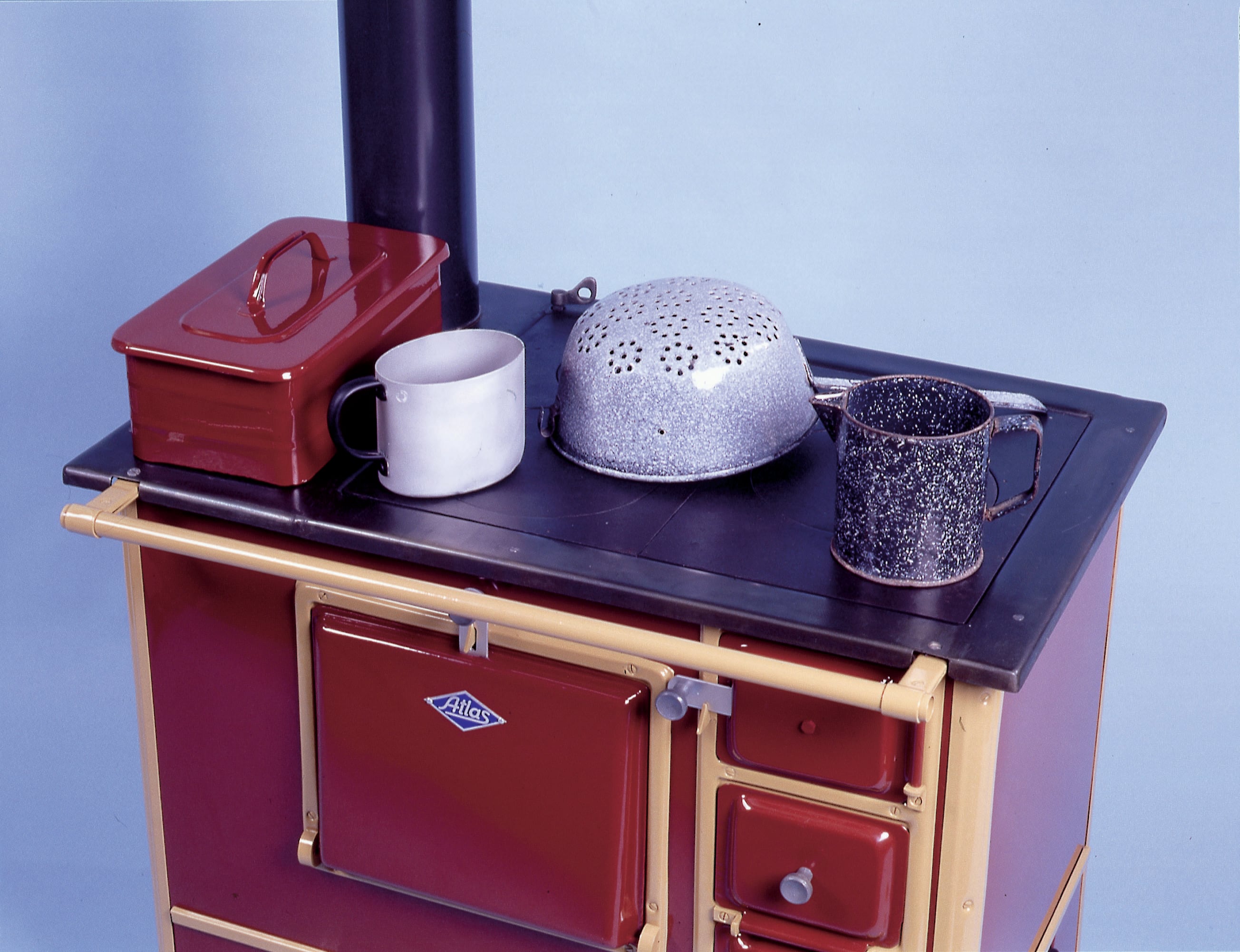
1946
Production for everyday life
Production was allowed to resume at Metallwerk as early as January 1946. However, demand for automobiles was low - so Brose restructured its product range under trusteeship and manufactured urgently needed everyday items under the brand name "Atlas" in the post-war years: saucepans, colanders, irons, ski bindings and even kitchen stoves.
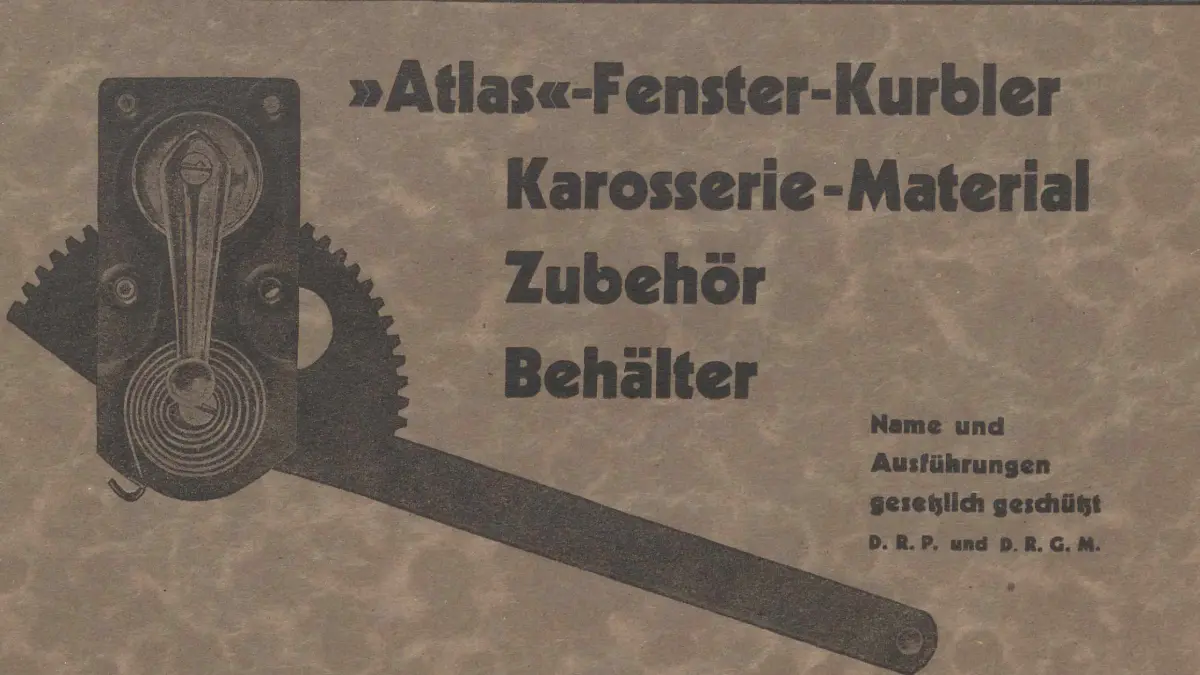
1948
Back in the company
After the legally binding ruling by the denazification trial court (Spruchkammer), Max Brose took over the management of his company again in the fall of 1948. The German economy was soon booming and demand for automobiles rose sharply. His company returned to its roots and strengths and manufactured window regulators, vulcanizers, crank handles, sun visors, compressors and canisters under the name "Atlas".
Brose products were installed in all well-known vehicle models of the time: Auto-Union, Borgward, Mercedes, Ford, Goliath, Opel, MAN, Tempo and Volkswagen.
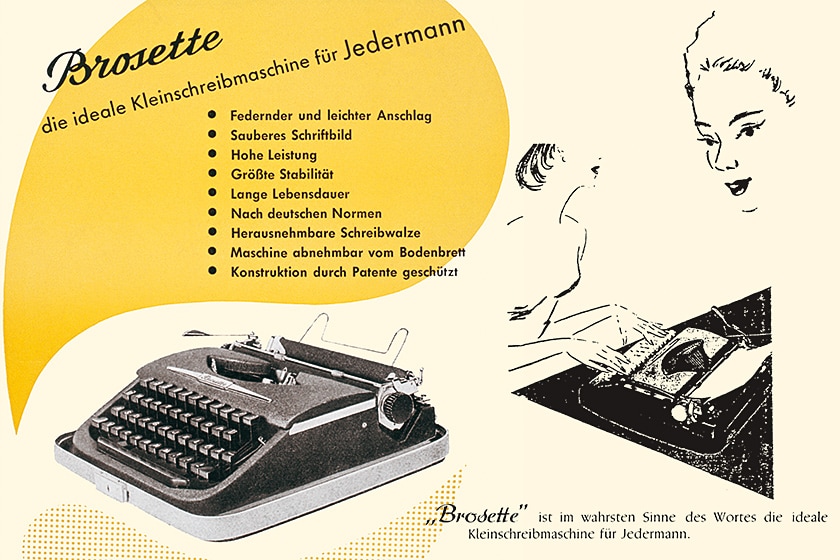
1953
Typewriter "Brosette"
At the beginning of the 1950s, Max Brose ventured into a completely new business segment. Based on an employee's idea, Brose built a handy and robust typewriter under the name "Brosette". Over 40,000 units were sold in Germany and abroad.
In 1959, Brose sold the machines and licenses to India in order to concentrate on its core automotive business. The machine is still coveted by collectors today.
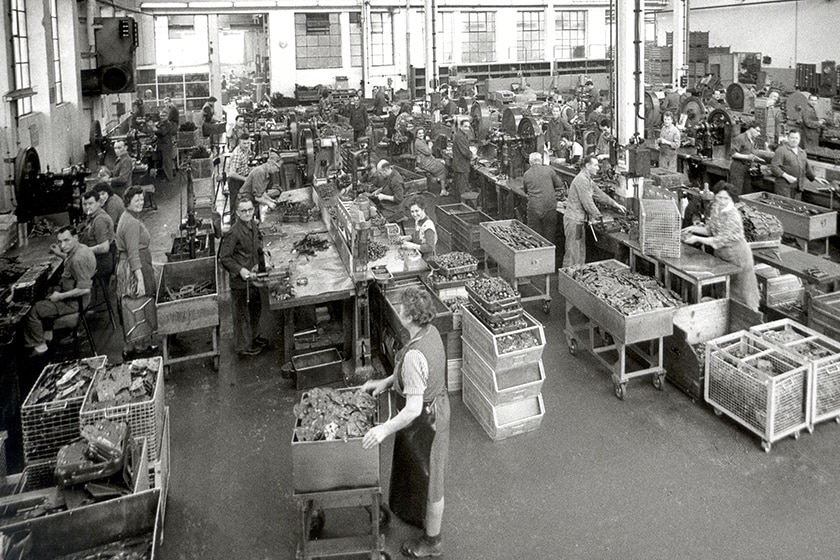
1955
Largest manufacturing company in Coburg
With around 550 employees, the Metallwerk was the largest industrial company in the Coburg economic area. Max Brose and Ernst Jühling invested in the expansion and modernization of the production facilities.
The product range was further adapted to customer requirements: In addition to window regulators for cars, trucks and buses, Brose supplied hinged window fittings, ventilation flaps, pressed, stamped and drawn parts as well as zinc die-cast parts.
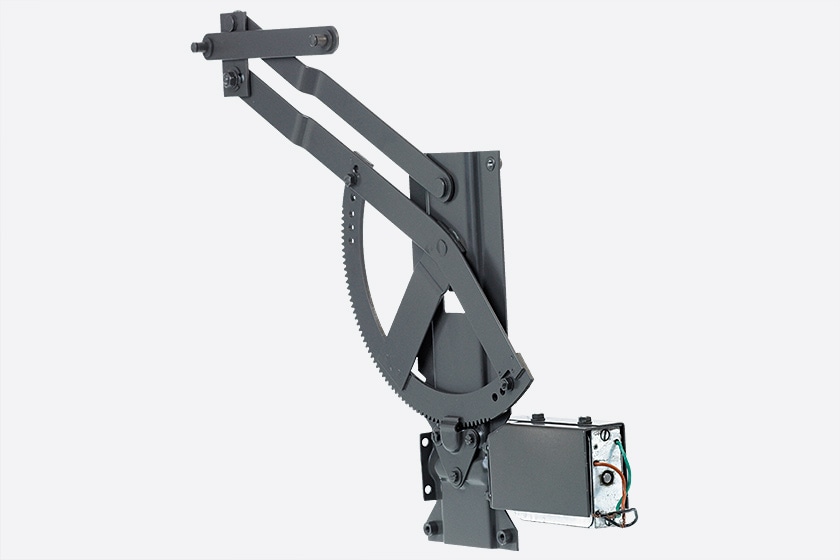
1963
Power window regulator
Following the American trend, the demand for more comfort and safety also increased in Europe. In 1956, Brose presented the "window regulator with electric drive" for retrofitting. In 1963, the company started series production of power window regulators on the European market. The BMW Coupé 3200 CS was the first vehicle to be equipped with this product.
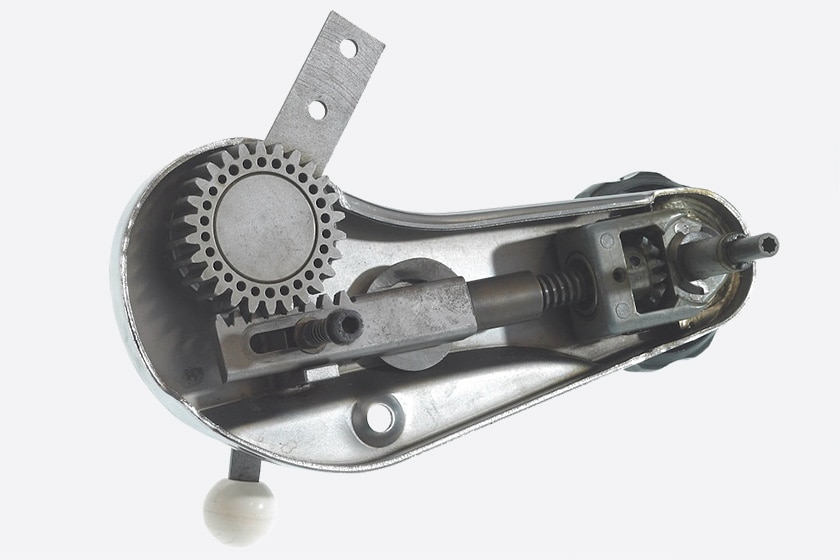
1968
Adjustment for seats
Brose recognized seat adjuster technology as a promising business field in the 1960s. From 1968, the Coburg plant manufactured seat fittings for adjusting the backrest. Success initially fell short of expectations. However, in the years to come, Brose pushed ahead with product development in the seat area with American cooperation partners in order to offer its customers greater comfort and safety.
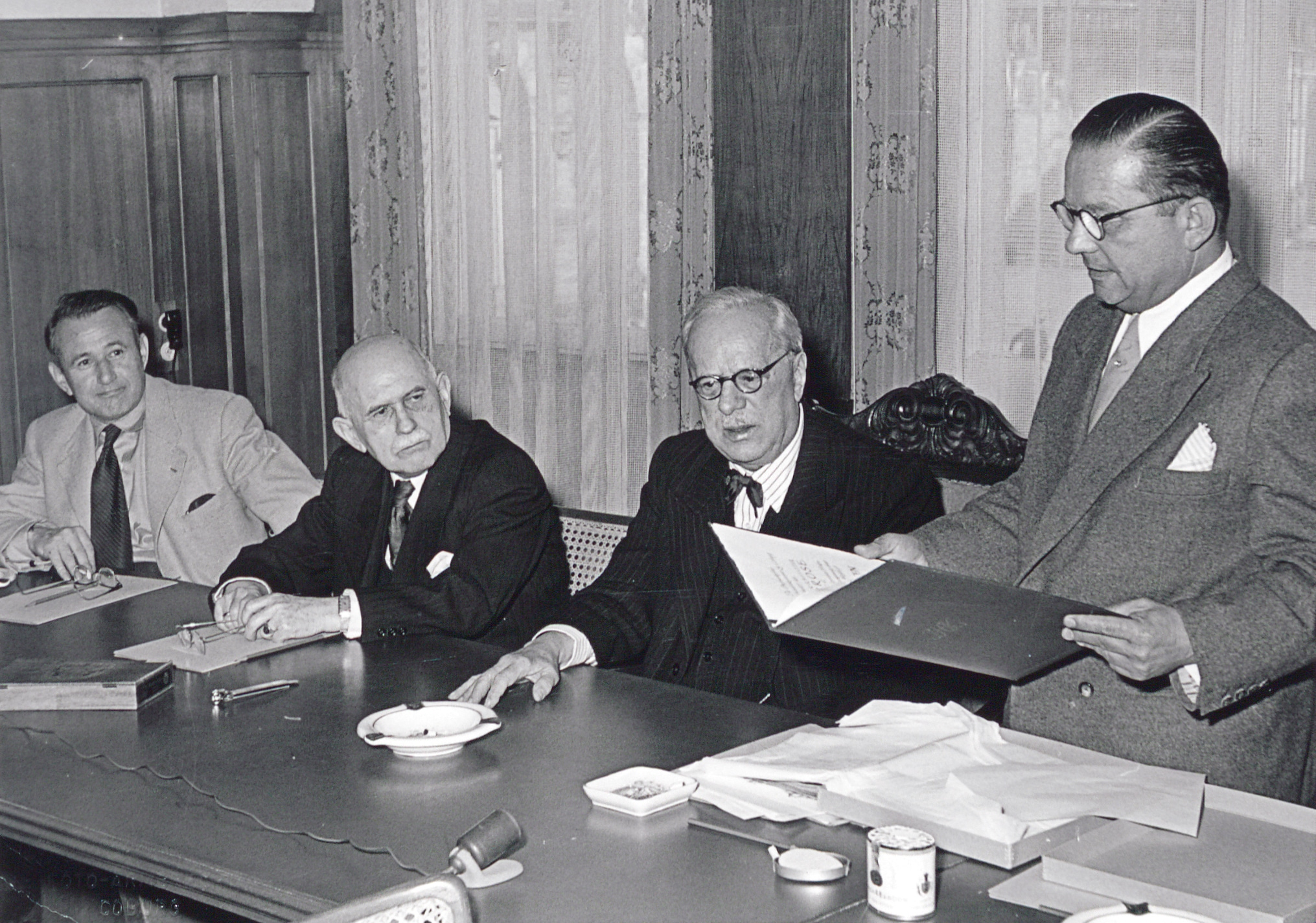
1968
Death of an outstanding entrepreneur
Max Brose died on April 11, 1968 at the age of 84. Family, friends and business partners emphasized his entrepreneurial vision, his services to the city of Coburg and his personal commitment to those in need. In 1955, the Coburg Chamber of Industry and Commerce elected Max Brose as its honorary president for his services to the local economy.
In 1962, Max Brose received the medal "The City Thanks" from the hand of Lord Mayor Dr. Walter Langer. On his 80th birthday, the Chamber of Industry and Commerce awarded our company founder the Chamber's Medal of Honor.
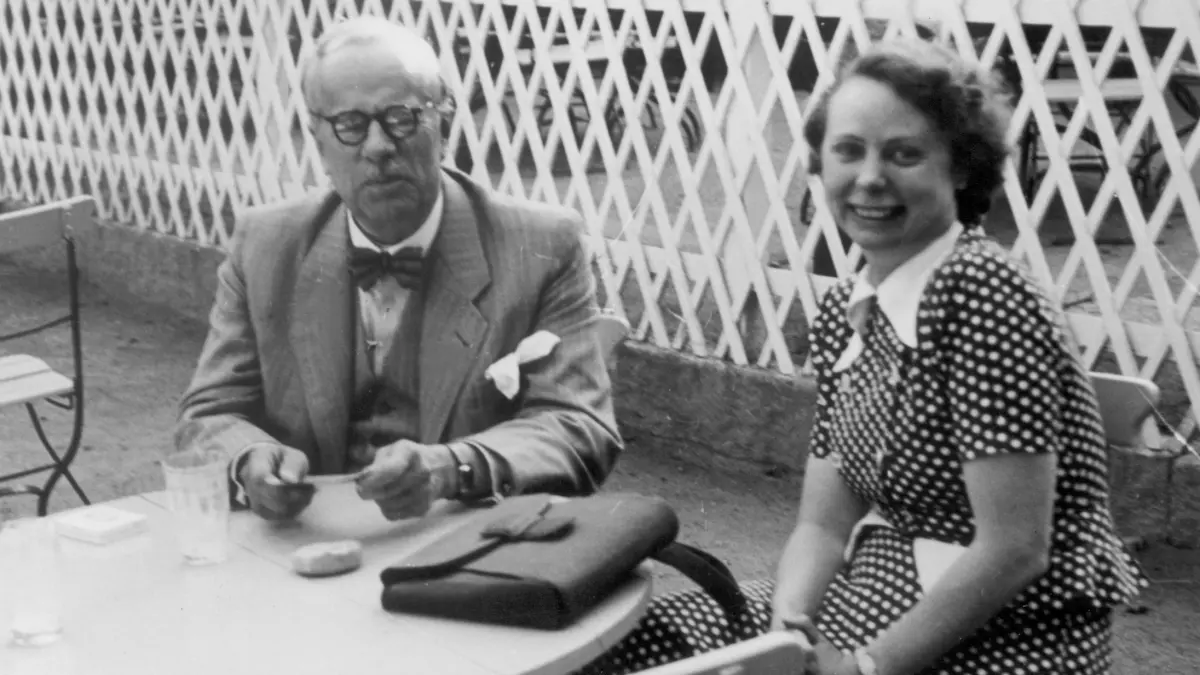
1969
Generation change
After the death of Max Brose, the family business underwent a generational change. Grandson Michael Stoschek, whom Max Brose had appointed as his successor, was still in training. Brose's older daughter Gisela managed the company during this transitional period. She had been with the company since 1939, managed the business with aplomb and set her own priorities, such as the introduction of a company pension scheme.
Dynamics with a system
When Max Brose died in 1968 at the age of 84, he had spent 60 years building up a company with 1,000 employees and a turnover of around 35 million DM. He had laid the foundations for solid, further growth. It was under the leadership of his grandson Michael Stoschek that the company's rise to world-class status began in 1971. "Systematic and dynamic" was the philosophy: when Michael Stoschek handed over the position of CEO to a non-family member after 34 years at the end of 2005, Brose had generated a turnover of 2.2 billion euros and employed around 8,900 people at 37 locations in 19 countries.
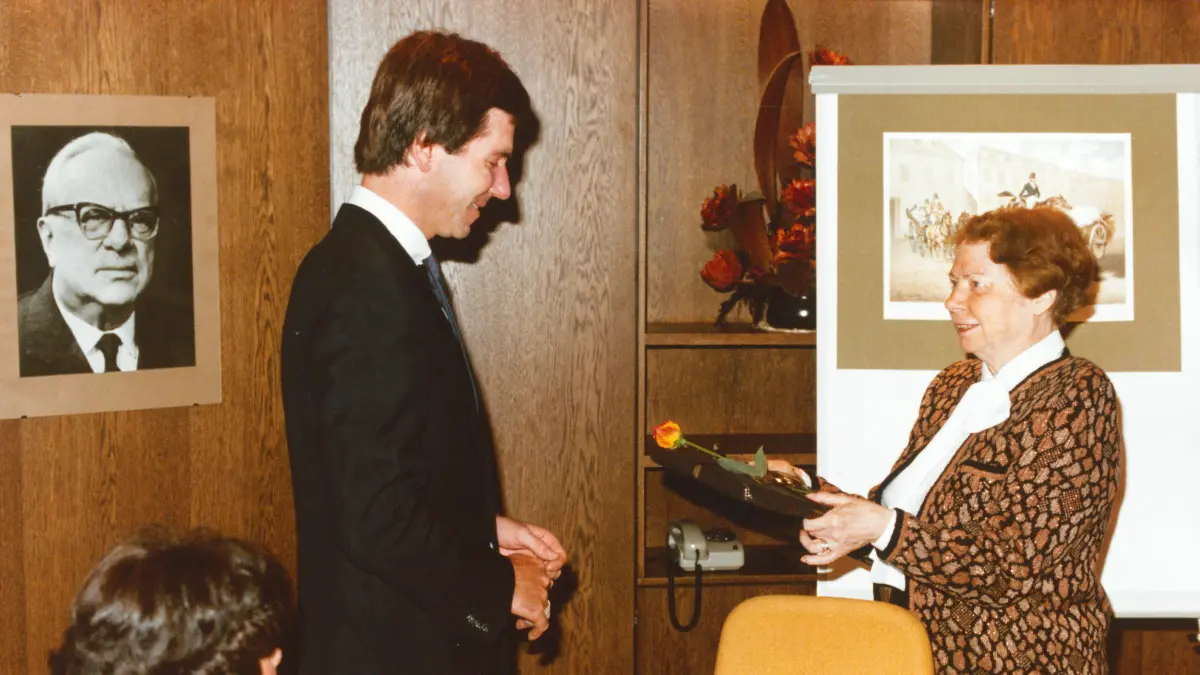
1971
Responsibility in young years
On October 1, 1971, Michael Stoschek took over the keys from his aunt Gisela Brose at the age of almost 24 and with them the responsibility. Brose had 1,000 employees, a turnover of 55 million DM and was debt-free. Over three and a half decades, Michael Stoschek consistently developed the company from a local master craftsman's business into an international world market leader.
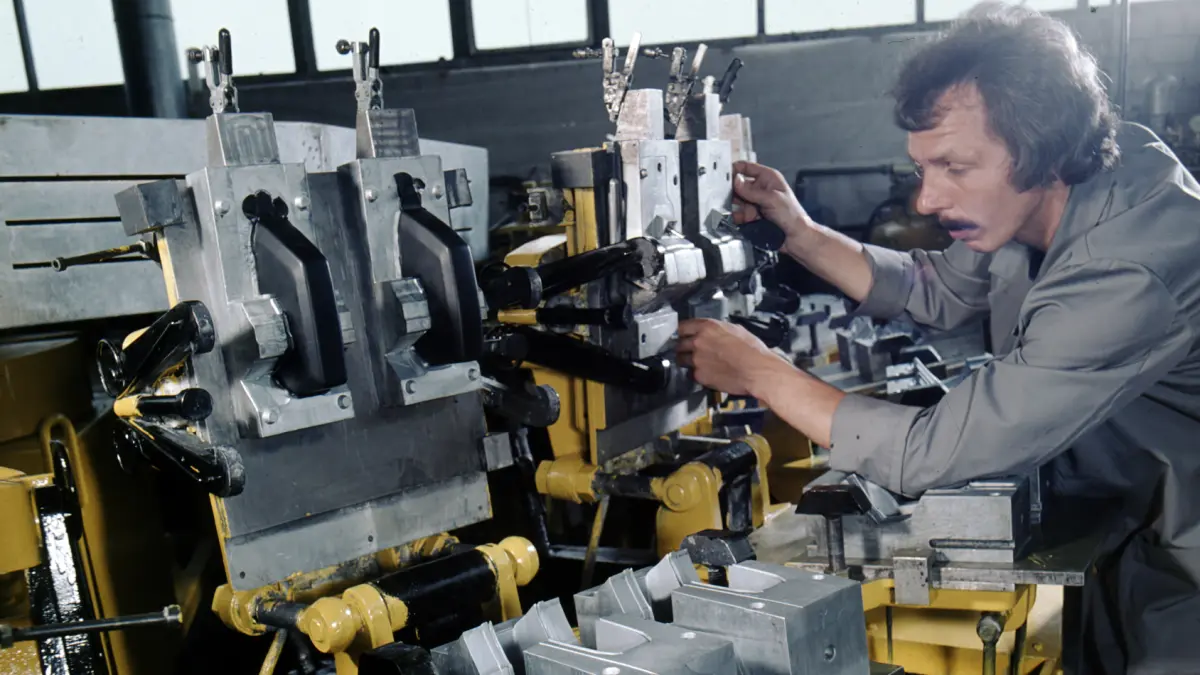
1973
Plastics technology
Brose entered a new business field in 1973 with plastics technology: for 15 years, the Coburg plant produced thermoplastics and polyurethane integral foam products such as headrests, covers, handles and gear knobs. In-house plastics production was scaled back in 1984. The last headrest left the plant in 1989: it is number 1.111.111.
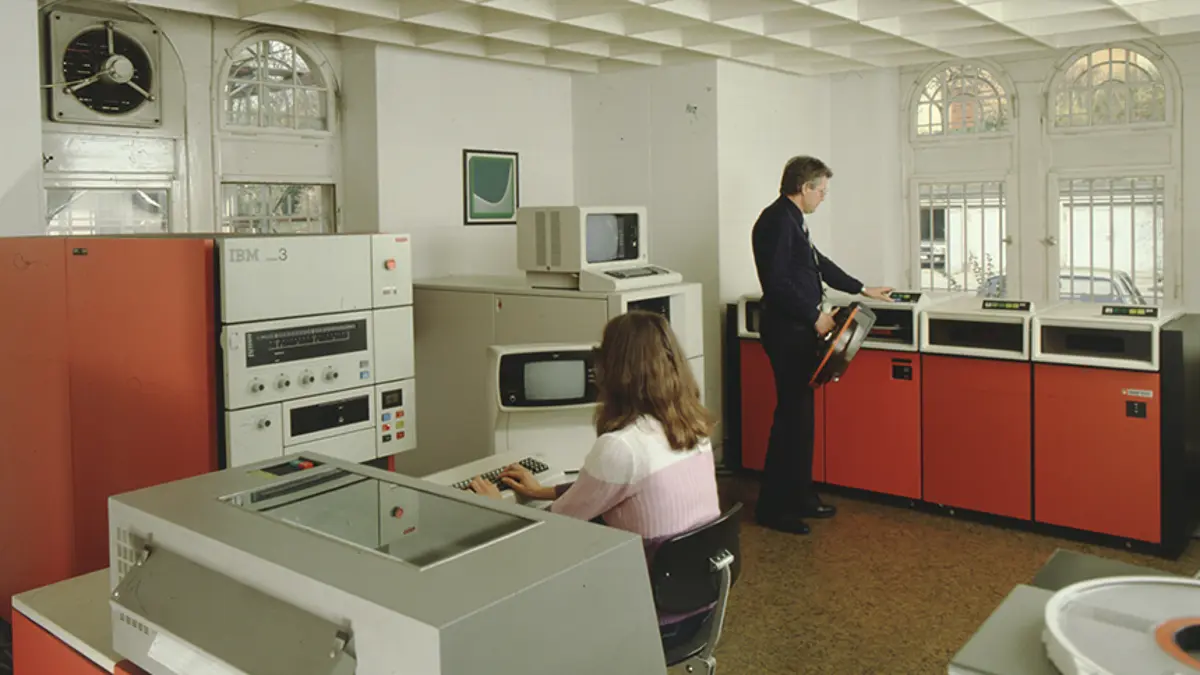
1973
Modern information technology
The age of data processing began in October 1973 when the "IBM 3 Model 15" system was put into operation. Brose remained a pioneer in the field of IT in the following years: in 1988 Brose was the first German company to install the most modern mainframe computer "IBM 3090-18S". Ten years later, SAP was rolled out worldwide for all commercial and logistical processes and a standardized IT system structure was created.
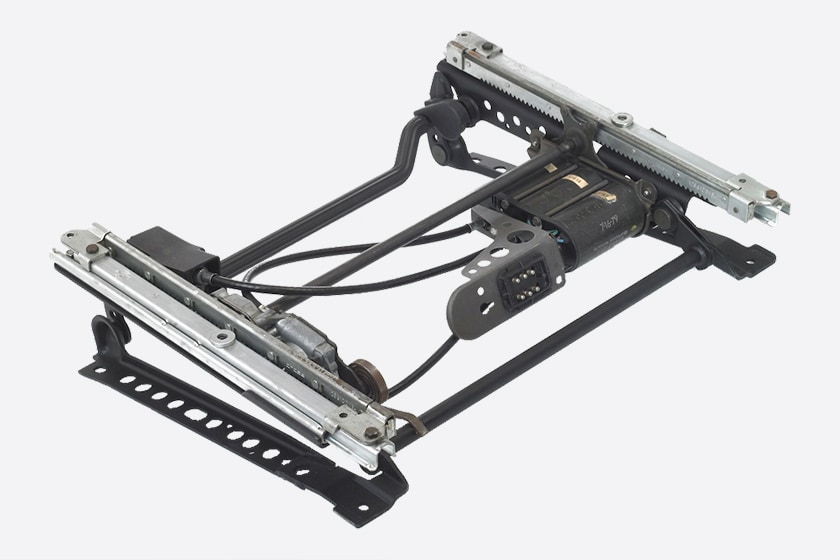
1979
Power seat adjuster
Ten years of development paid off: Brose was the first manufacturer in Europe to produce power seat adjusters from 1979 - initially for the Mercedes-Benz S-Class. The seat could be conveniently adjusted in height, tilt and length. From 1983, Brose equipped the seat adjuster with an electronic seat position memory. The product range was later extended to include backrest and headrest adjustment.
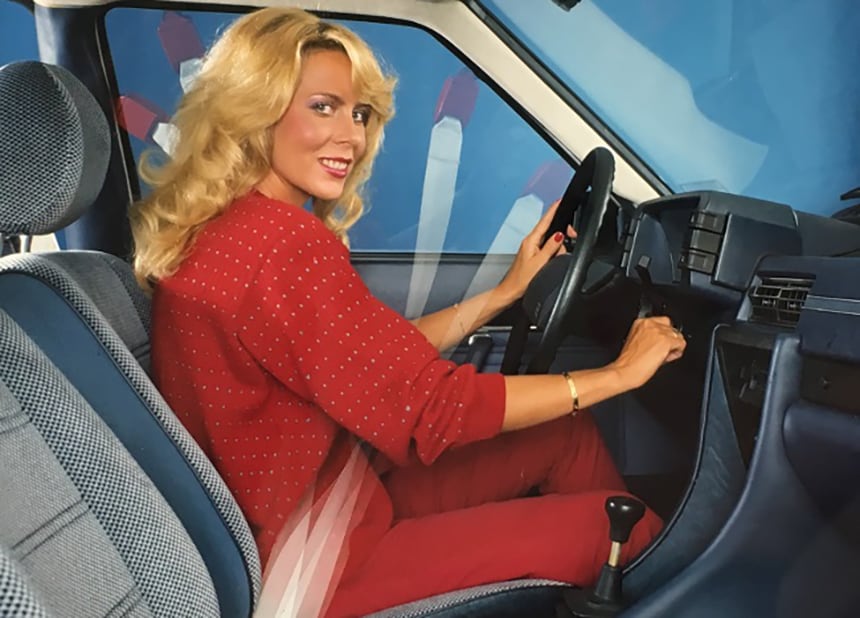
1979
Seat belt transport system
Brose developed the electric seat belt transport system (EGT) in 1979 and entered a new product segment. The EGT automatically buckles the seat belt around the driver and front passenger. As the issue of mandatory seat belt use was controversial in Germany, Brose began selling the system in the USA in 1986. We failed to achieve broad market success. But the EGT joined the line of Brose products that increased comfort and safety in the car.
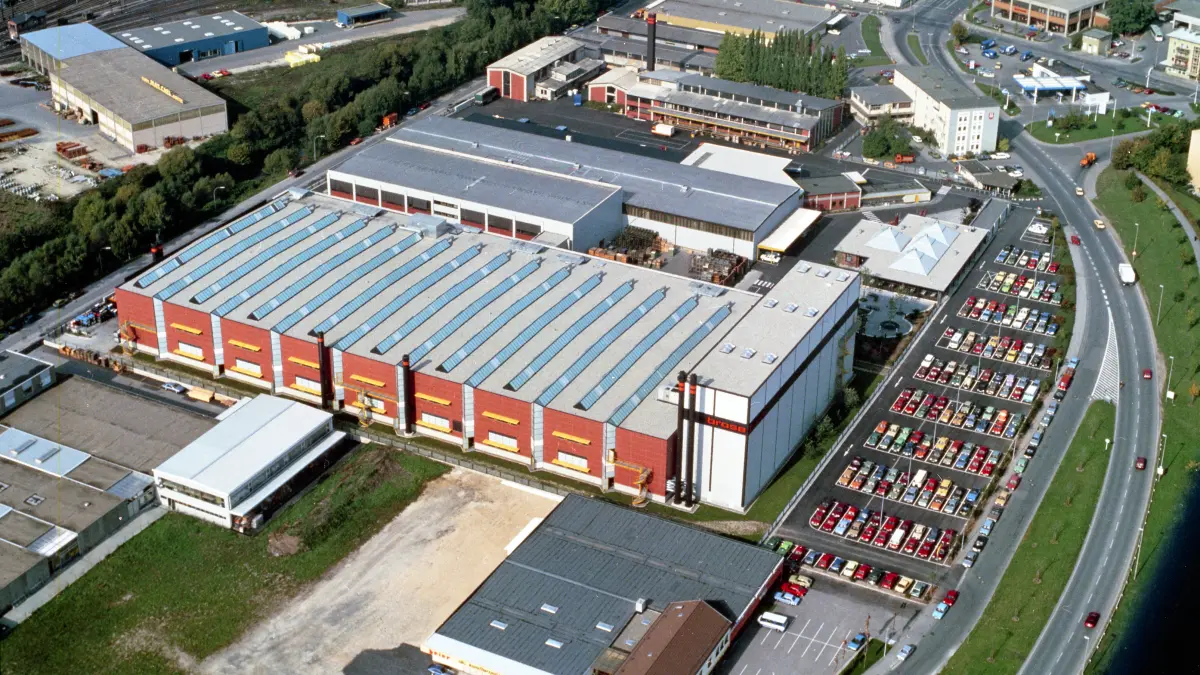
1983
A new plant for Coburg
In September 1981, the ground-breaking ceremony for a large-scale plant expansion took place. The Plant 2 on Bamberger Strasse was the largest investment to date: after 18 months of construction, 750 employees moved into their new workplace in spring 1983. Now 24,000 square meters of production space and over 5,000 square meters of storage space were available. The new high-bay warehouse was 23 meters high and 60 meters long and designed for 6,000 pallet spaces.
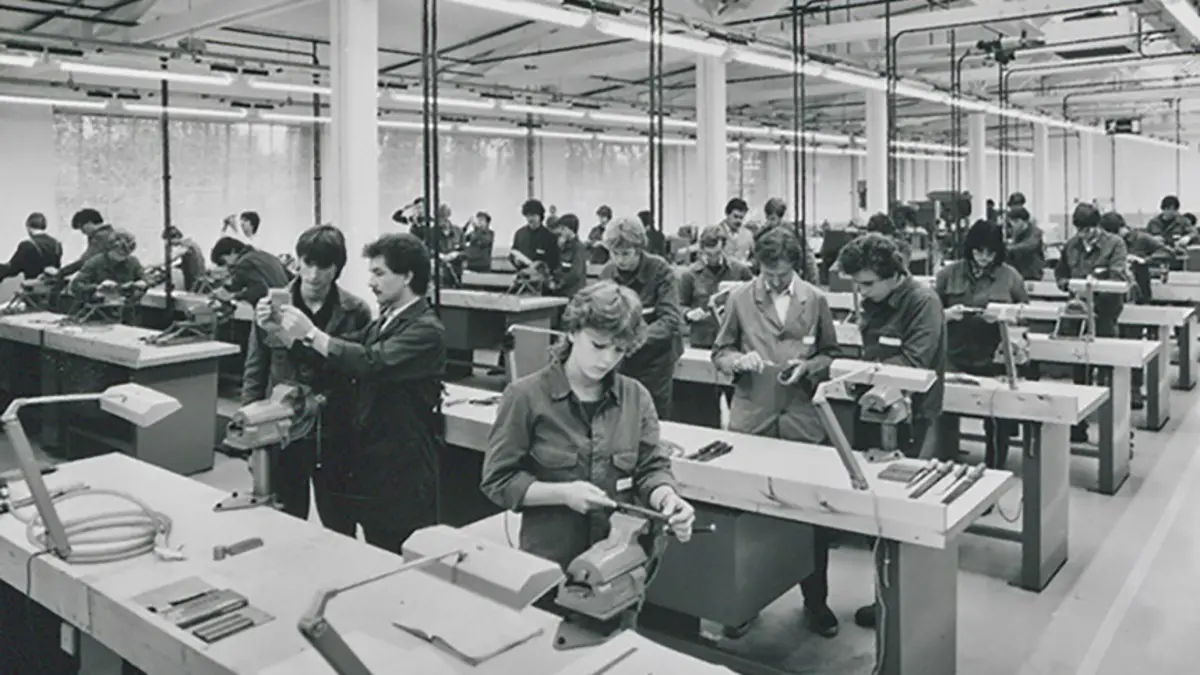
1984
Excellent apprenticeship
In 1984, German President Carl Carstens presented Brose Managing Director Jakob Faßbender with the award for outstanding in-company training. Brose offered state-of-the-art technical facilities in its new Coburg facility. Brose's program always included varied sports activities, excursions to customers and exclusive seminar weeks.
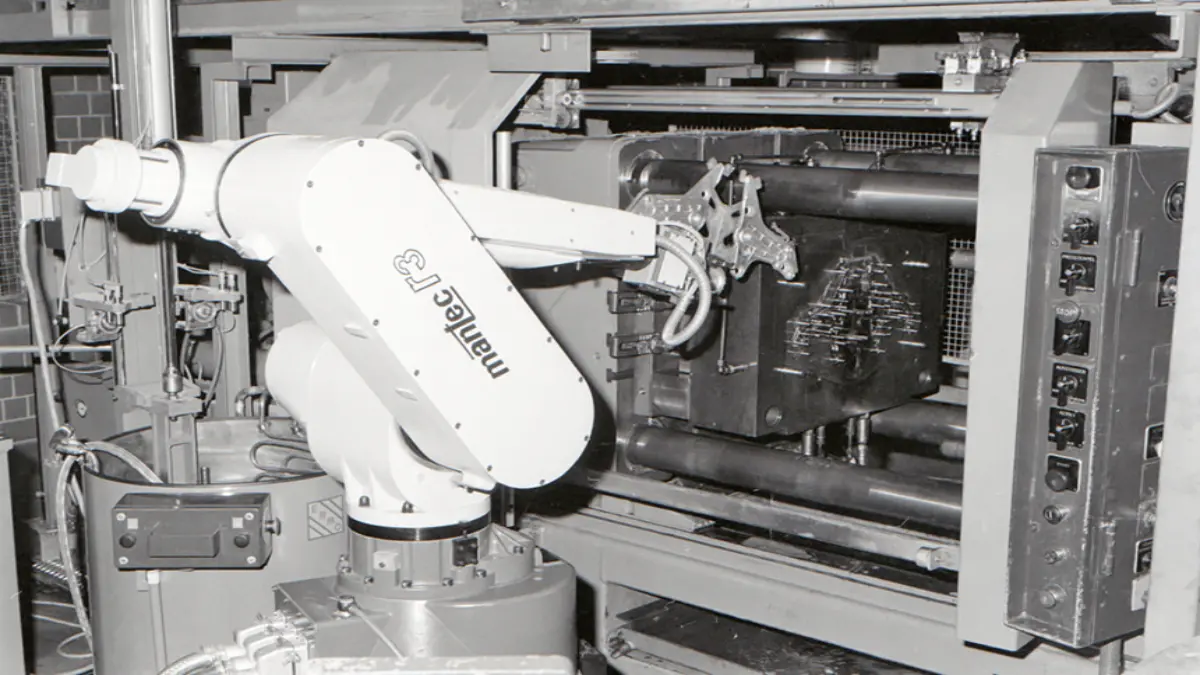
1985
Robots at work
In March 1985, the first robot started work at Brose in the die casting foundry in Coburg. There, the "Mantec r3" supported the production of aluminum base plates for window regulators. Thanks to its use, production is faster, cheaper and more ergonomic. In 1987, the training workshop received its first training robot.
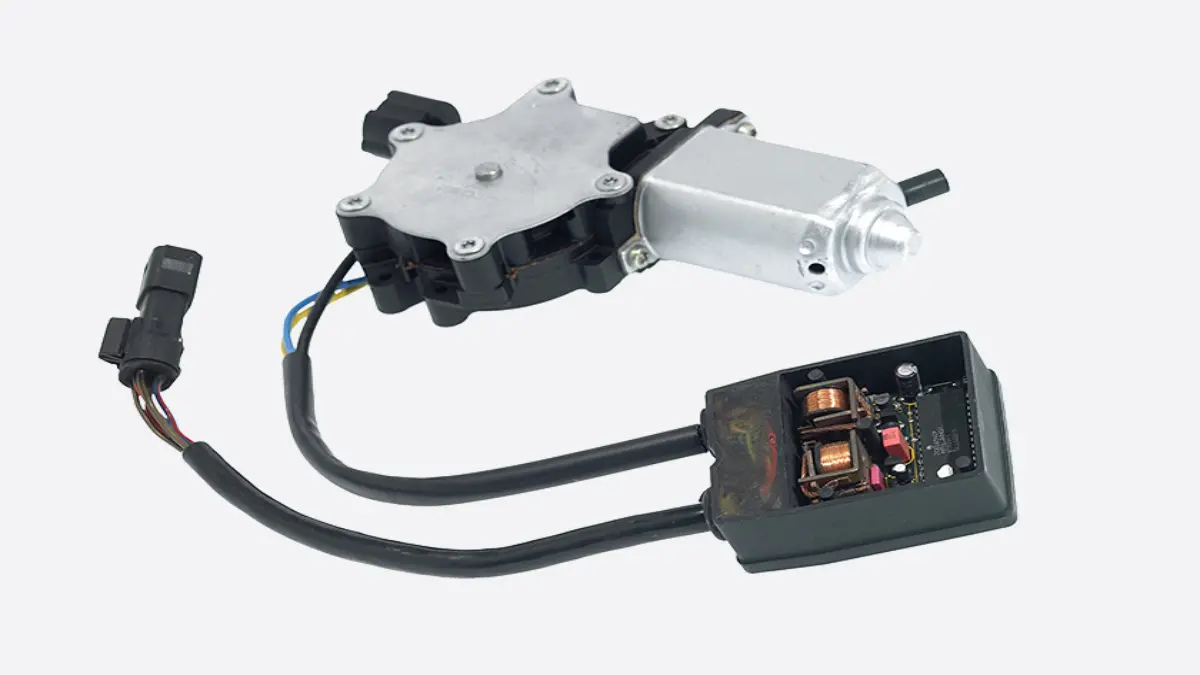
1986
Worldwide innovation: Anti-trap protection
With the development of the world's first electronic control unit for power window regulators in 1986, Brose paved the way for its entry into mechatronics. The electronic "anti-trap protection" has an "automatic run" and "central closing/opening" function as well as a sensor system that detects obstacles. The rising window stopped and lowered itself. Today, this technology is the global standard.
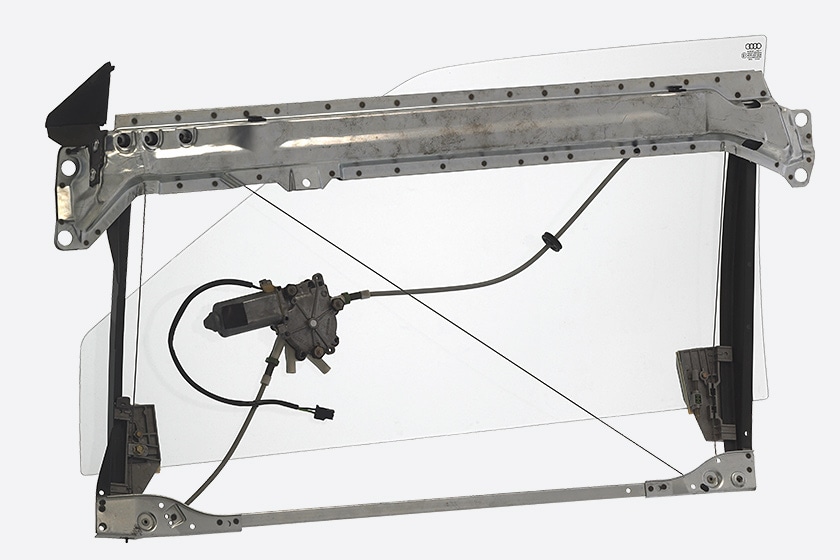
1987
Innovative door module
Brose broke new technical and logistical ground with the modular door for automobiles: all door components were assembled into a door module. This was pre-tested and delivered to the car manufacturer's assembly line ready for installation at the specified time. The door module was first installed in the Audi 80 Coupé in 1987.
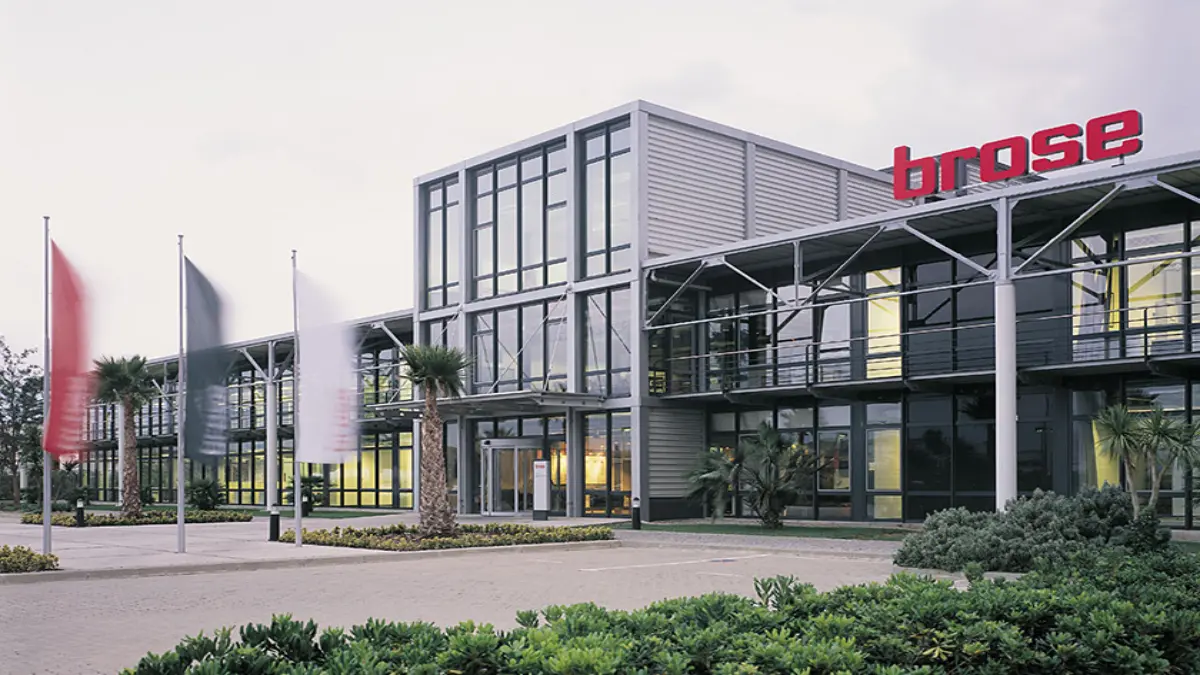
1988
Internationalization
At the end of the 1980s, Brose founded its first two foreign production plants in England and Spain. In 1993, the first production plant on the American continent was put into operation in Querétaro/Mexico. From 1994, development and sales companies were established in Detroit, Tokyo and Paris. In China, Brose has been present since 1995.
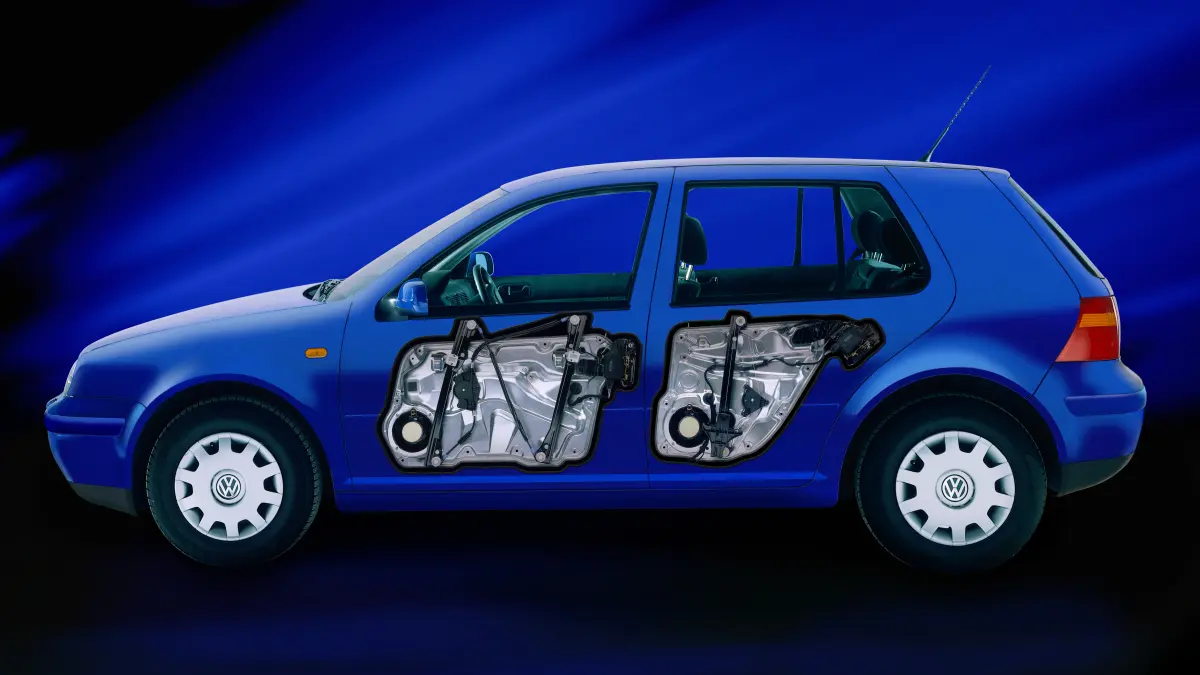
1997
Door systems just in sequence
The plant in Meerane/Saxony, built in 1997, was the first Brose location to manufacture door systems that are produced in line with the car manufacturer's vehicle production cycle - just-in-sequence (JIS) - and delivered directly to the assembly line. This location is regarded as the pioneer for all other following JIS plants of the Brose Group.
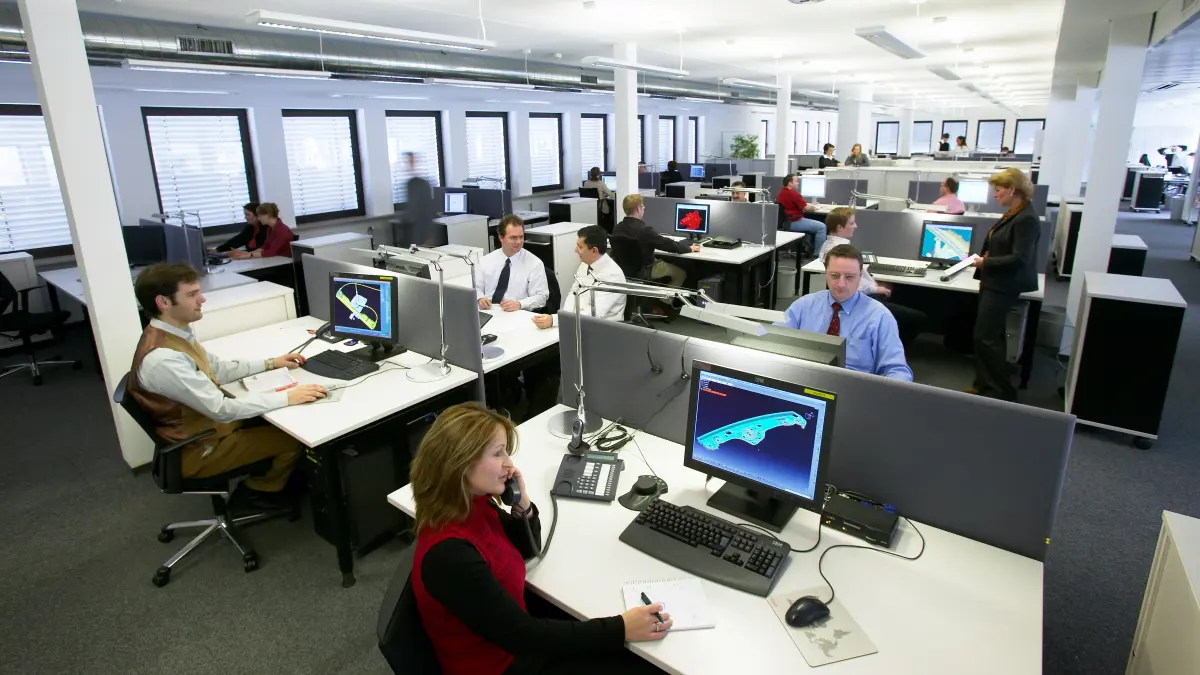
2001
Brose Working Environment
Around the turn of the millennium, the largest modernization program in the company's history was launched at the Coburg headquarters, redefining the corporate design: the "Brose Working Environment" created modern workplaces, efficient administrative processes and a performance-related remuneration system - in conjunction with a uniform corporate image worldwide. This work organization was exemplary in the industry.
Key elements include state-of-the-art communication technology, variable working hours, a performance-related pay system and attractive social benefits.
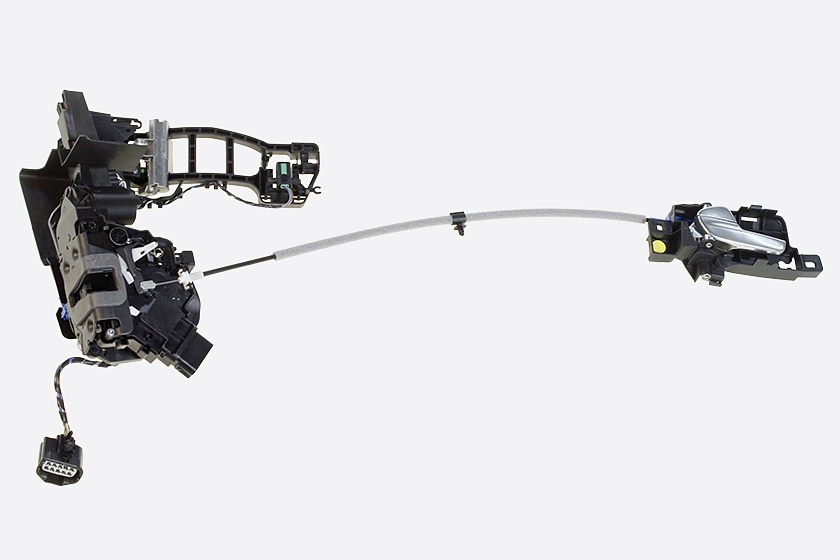
2002
Expertise in closure systems
Brose expanded its expertise in vehicle doors in 2002 with the acquisition of Bosch's closure systems business. Latch modules from Brose combine the door latch and all associated mechanical and electrical connections into a single assembly. They are characterized by less effort when opening, low-noise closing and improved anti-theft protection.
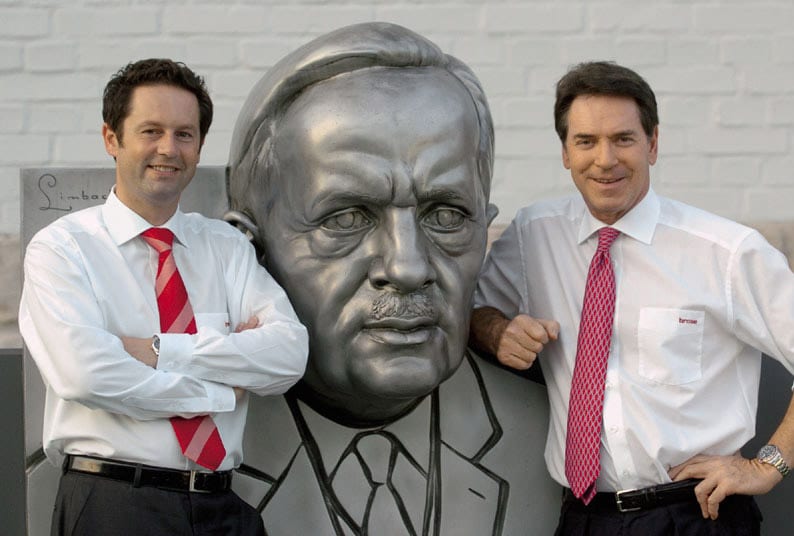
2005
Management Change
After more than 34 years, Michael Stoschek handed over the chairmanship of the management board to Jürgen Otto at the end of 2005. This marks the end of the most successful business year in the company's history: Brose generates a turnover of 2.2 billion euros and employs around 8,900 people at 37 locations in 19 countries. Jürgen Otto's appointment marks the first time that a non-family manager has headed the company.
Global Player
Brose is the largest privately owned German company in the supplier industry. Every third new car is equipped with at least one Brose product. The mechatronics specialist develops and manufactures systems for vehicle doors, liftgates and seats. The family-owned company employs approximately 31,000 people at 68 locations in 24 countries. In 2024, the Brose Group generated sales of 7.7 billion euros.
-2014.jpg)
2006
Focus on weight reduction
For decades, Brose has been making an important contribution to optimizing vehicle weight and thus reducing CO² emissions through consistent lightweight construction. One example of this is the plastic door system with integrated window regulator guide rails.
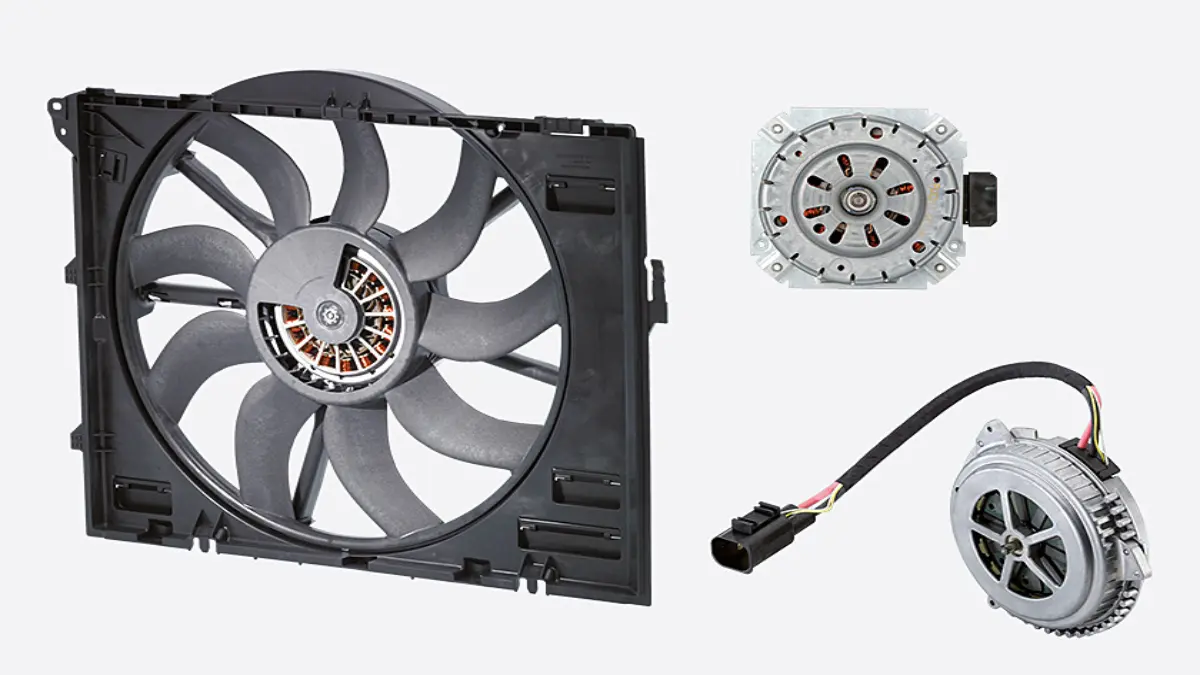
2008
Integration of drives business
At the end of 2007, Brose acquired the former Siemens-VDO Electric Motor Drives division and the cooling fan business of Continental AG. On April 1, 2008, the Brose product range was expanded to include electric drives for window regulators, electronic braking systems such as ABS or the electric parking brake, automated manual transmissions and electric steering systems. The drives also control the heating and ventilation fans and ensure efficient engine cooling.
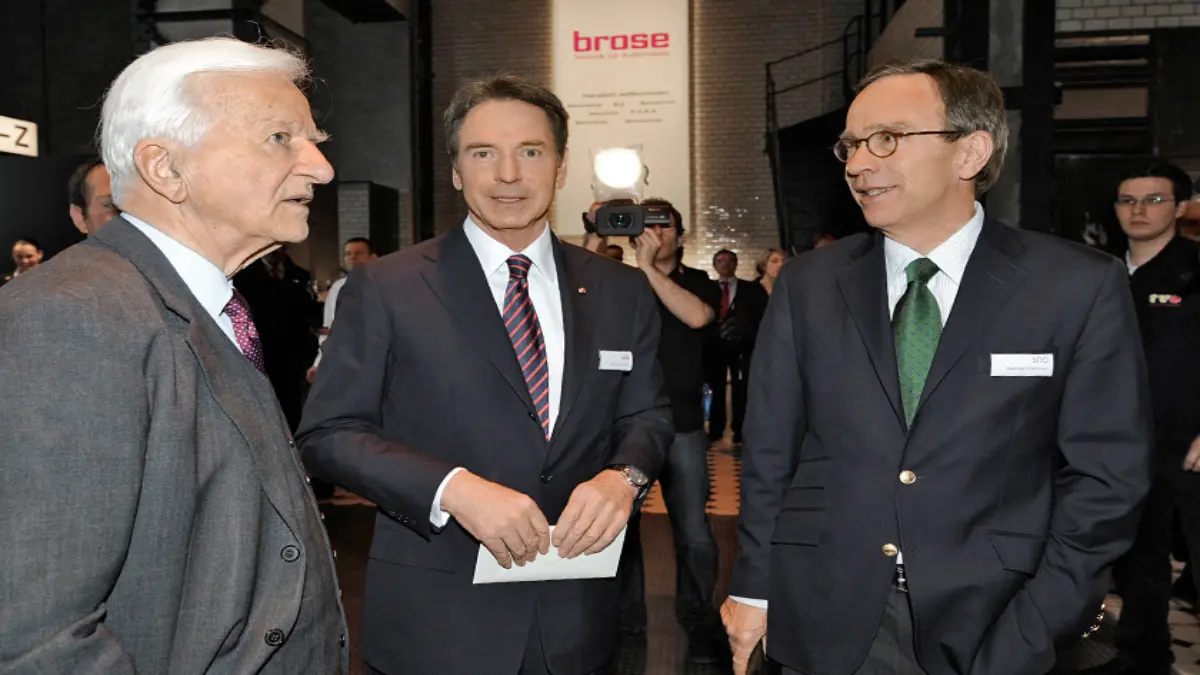
2008
100th anniversary
Our family-owned company celebrated its centenary with a major ceremony in Berlin in the presence of Federal President Richard v. Weizäcker and family celebrations at many of our locations. 100 years after its foundation, the group of companies had more than 15,000 employees at 50 locations.
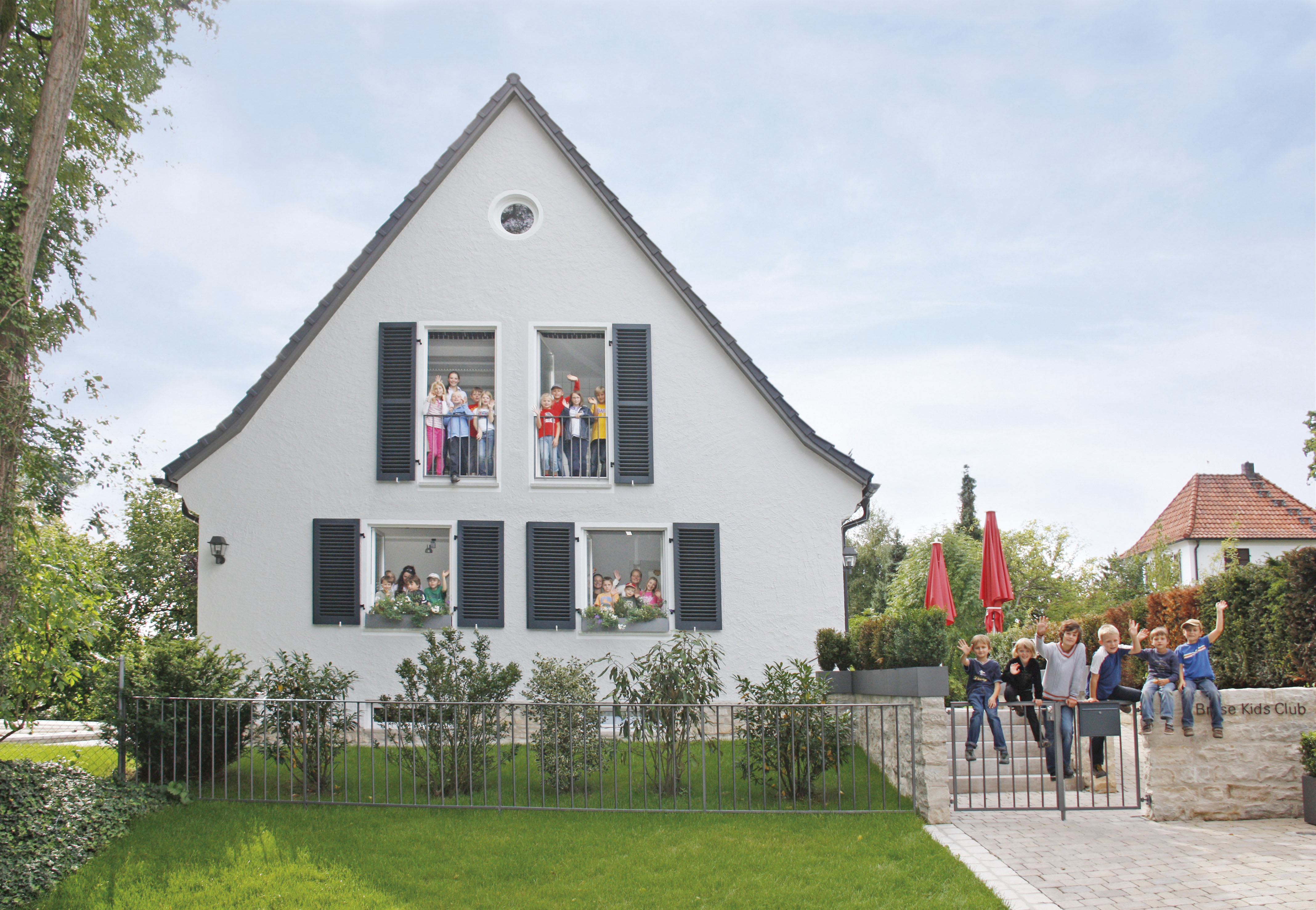
2009
First Brose Kids Club
The Brose Kids Club opened in Coburg on December 16, 2009. It is an innovative educational and childcare facility for employees' children. The facility is housed in the home of the late partner Christa Leber, the daughter of company founder Max Brose. The well-being of the employees was always close to her heart.
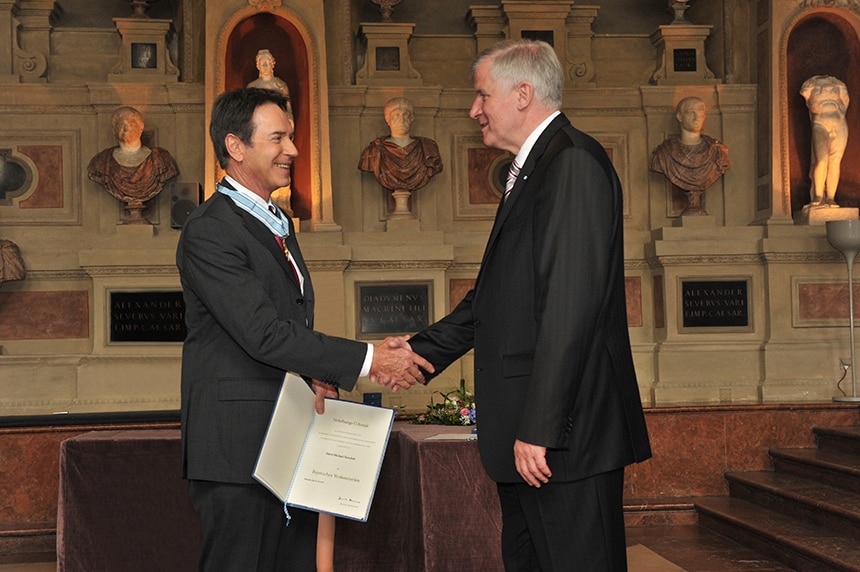
2010
Bavarian Order of Merit for Michael Stoschek
On July 29, 2010, Bavarian Minister President Horst Seehofer awarded Michael Stoschek the Bavarian Cross of Merit at a ceremony in the Antiquarium of the Munich Residence. The award honors the achievements of one of Germany's most successful and respected business personalities.
In 2004, Michael Stoschek received the Cross of Merit 1st Class of the Order of Merit of the Federal Republic of Germany from Bavaria's Minister of Economic Affairs, Dr. Otto Wiesheu, and in 2005 Stoschek was named Family Entrepreneur of the Year. In addition to his entrepreneurial activities, Stoschek has rendered outstanding services as a competitive sportsman, patron of the arts and through his social commitment.
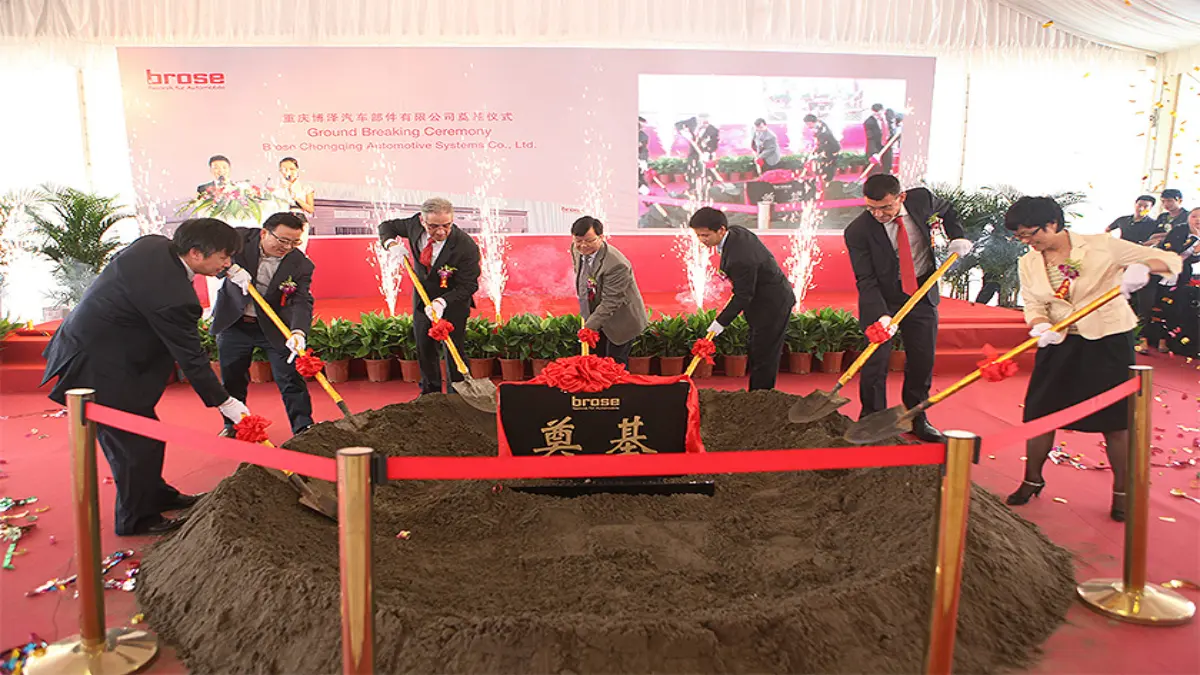
2011
Focus on Asia
Brose strengthened research and development in China in 2011. The foundation stone was laid for another plant in Chongqing. Our family-owned company now had five locations in China. The joint venture Mando-Brose Corporation entered the South Korean market at the beginning of 2011. In Pune/India, Brose opened a plant for window regulators and seat height adjusters in February 2011.
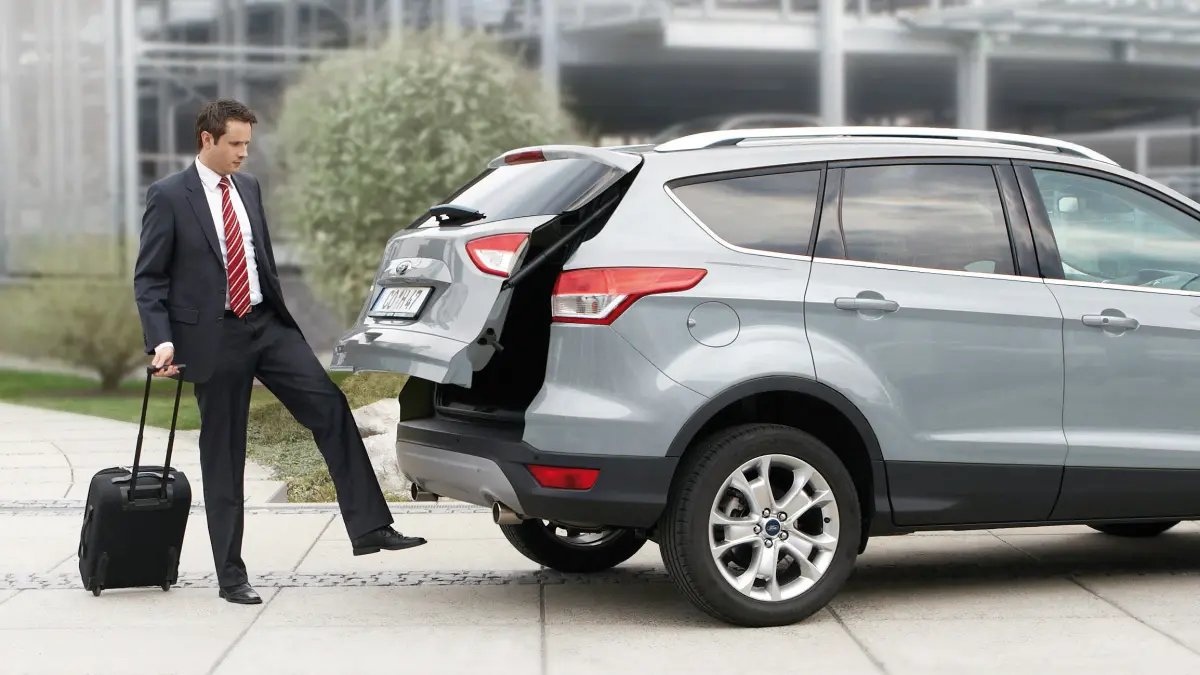
2011
Intelligent closing and opening of the liftgate
At the IAA 2011, Brose presented an intelligent solution for opening and closing the liftgate, which ensures convenient loading and unloading without having to operate the key or set down luggage: A simple kick of the foot under the bumper is all it takes to open the liftgate.
The concept also includes contactless anti-trap protection and an optical sensor that stops the opening and closing process before a collision with obstacles occurs. It is also possible to combine the tailgate sensor with the load compartment cover: this moves at the same time as the tailgate.
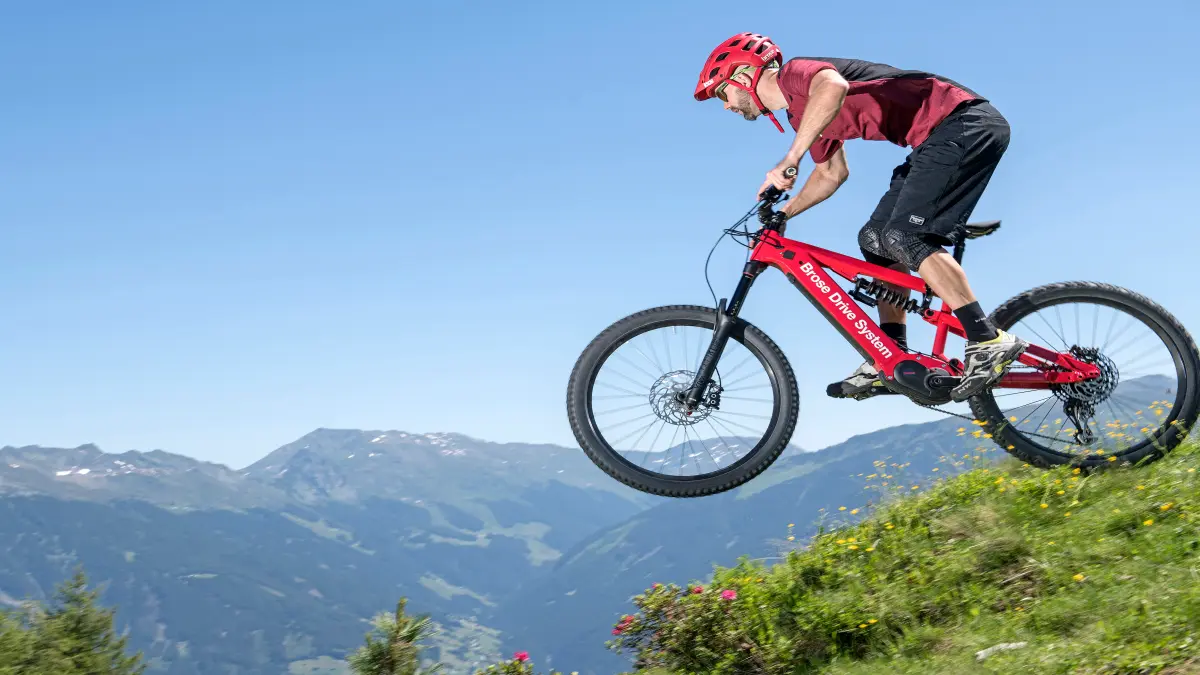
2014
E-Bike drives "Made in Germany"
Series production of a new electric motor for e-bikes started at the Berlin plant on July 15, 2014. This made Brose the only manufacturer to offer a drive system "Made in Germany". Starting in 2011, Brose engineers successfully developed an innovative drive system for E-bikes based on a steering motor for cars that has been produced millions of times over.
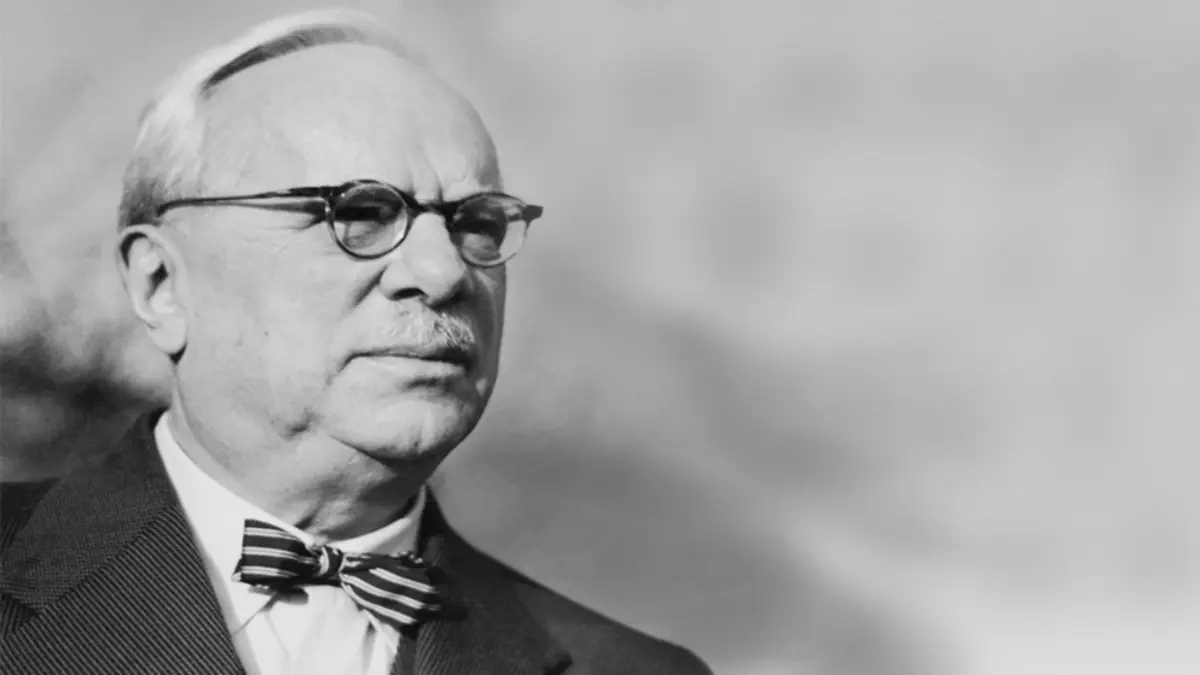
2015
Life achievement of Max Brose honoured
As a personality and entrepreneur, Max Brose is a role model whose values and principles have shaped the successful development of the Brose Group to this day. Principles such as social responsibility and fairness are part of his legacy and are practiced worldwide. In May 2015, the city of Coburg honored the lifetime achievements of company founder Max Brose and dedicated a street to him at the company's headquarters.
This means that eight streets in Germany, Slovakia, Portugal, the USA, Canada and Brazil now bear the name of the Brose Group's founder.
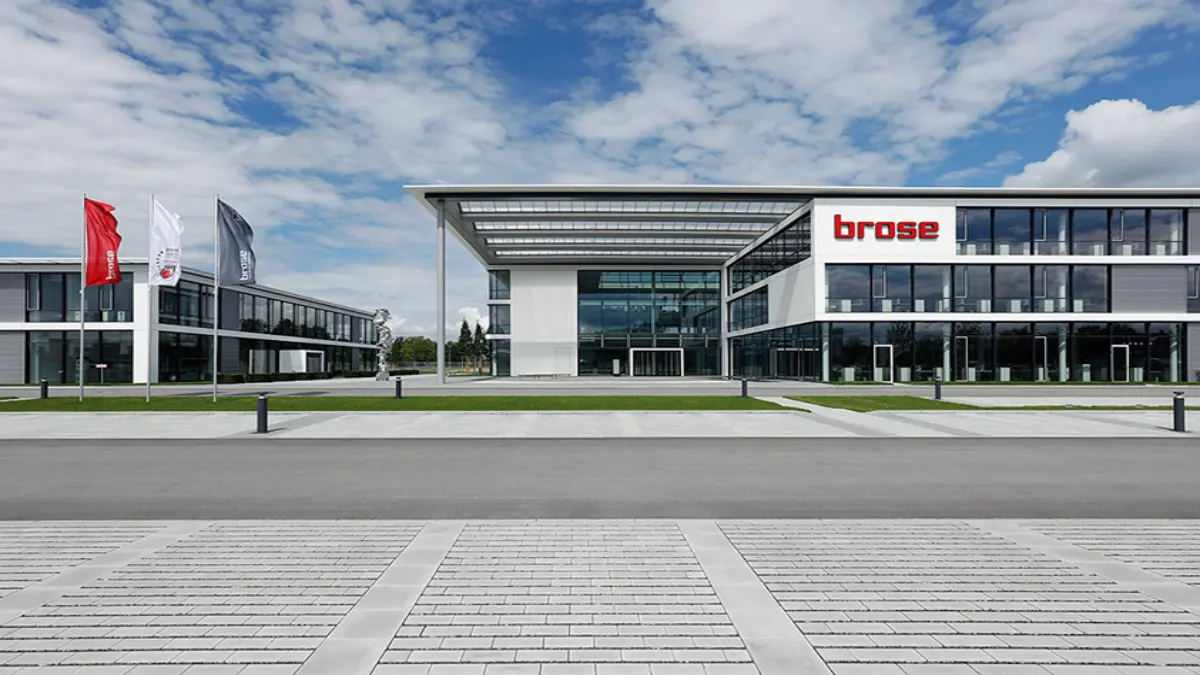
2016
Brose prepares for further growth
Brose set the course for the expansion of technical and commercial central functions in 2016 with the relocation to Bamberg: around 600 employees initially managed the corporate group's global purchasing, development, electronics and information technology in the modern office complex.
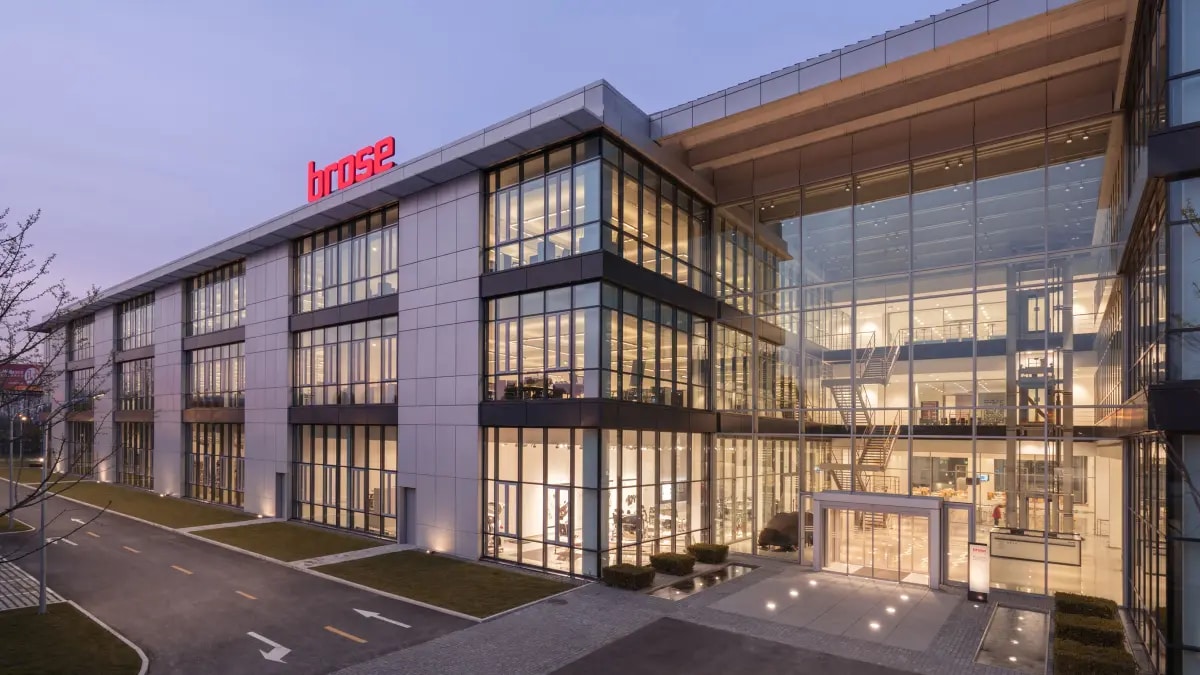
2017
In China for China
In April 2017, Brose opened an administrative building in Shanghai for 600 employees in development, sales, purchasing, quality and HR. The Brose factories in China as well as the production facilities and sales offices in Japan, Korea and Thailand are managed and supported from there. The aim is to consolidate and expand the market position in China.
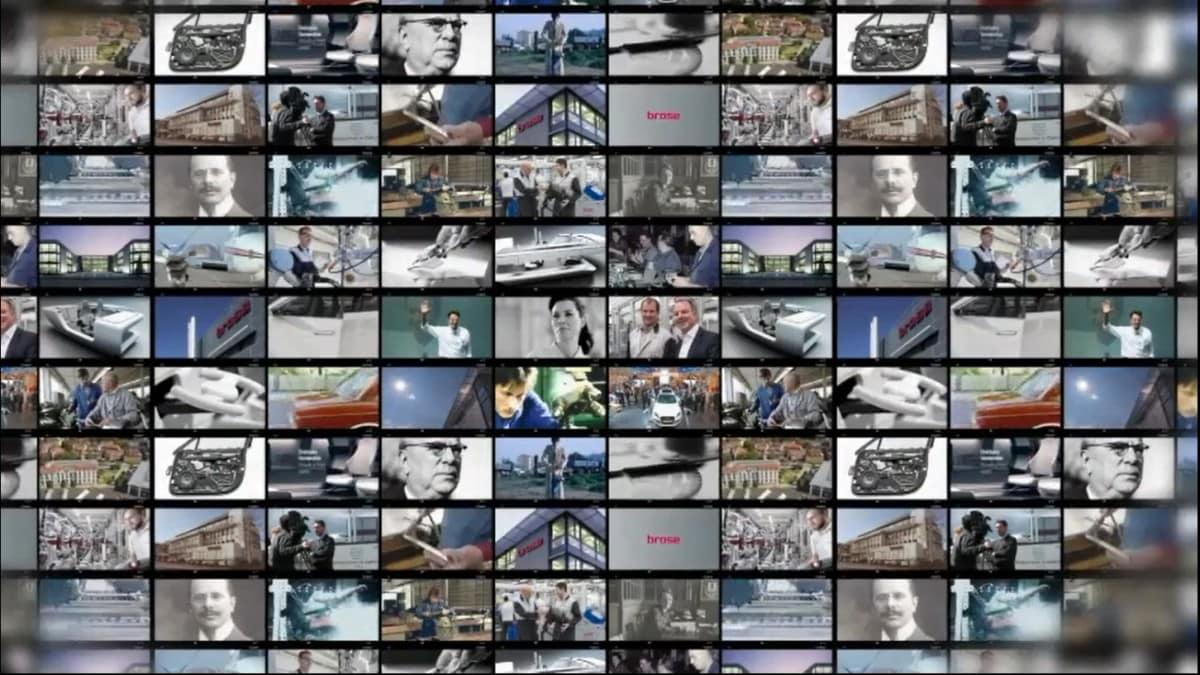
2019
100 years Brose Coburg
Eleven years after opening his trading company in Berlin, Max Brose and Ernst Jühling founded Metallwerk Max Brose & Co. in Coburg. From 1971, his grandson Michael Stoschek developed the regional craftsman's business into a globally active automotive supplier. At a ceremony on July 6, 2019, the shareholders and management looked back on the last century and gave guests from politics, business and culture an outlook on the future.
Activate video service?
Only by clicking on this button is data exchanged with the video provider BrightCove. You can find more information about this in the data security policy
Tradition meets future
To mark the 100th anniversary of our main plant in Coburg, our shareholders and former and current employees have their say in a historical corporate film and reflect on the exciting journey of our family business since 1908.
